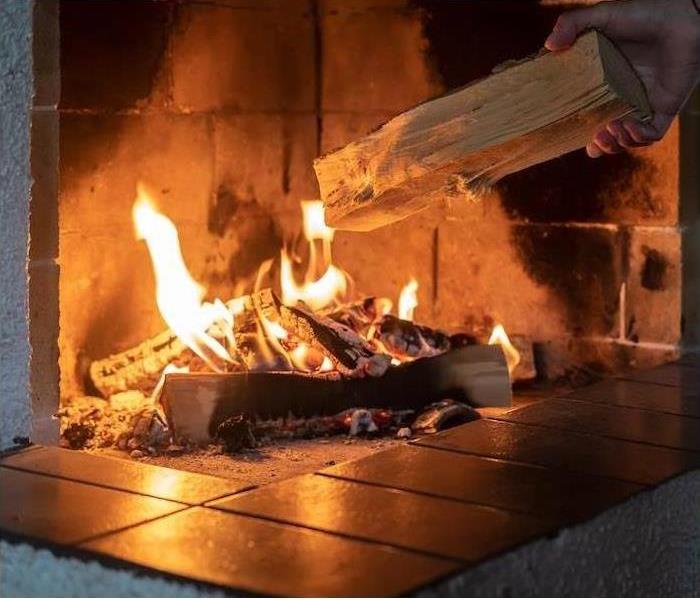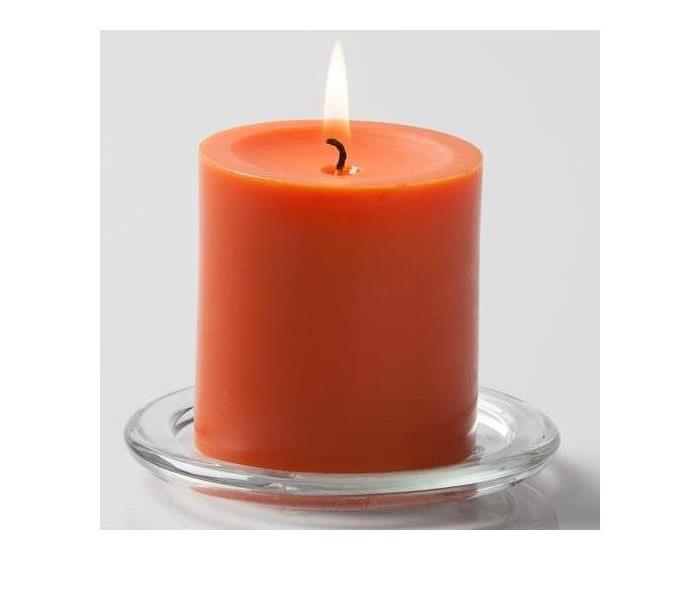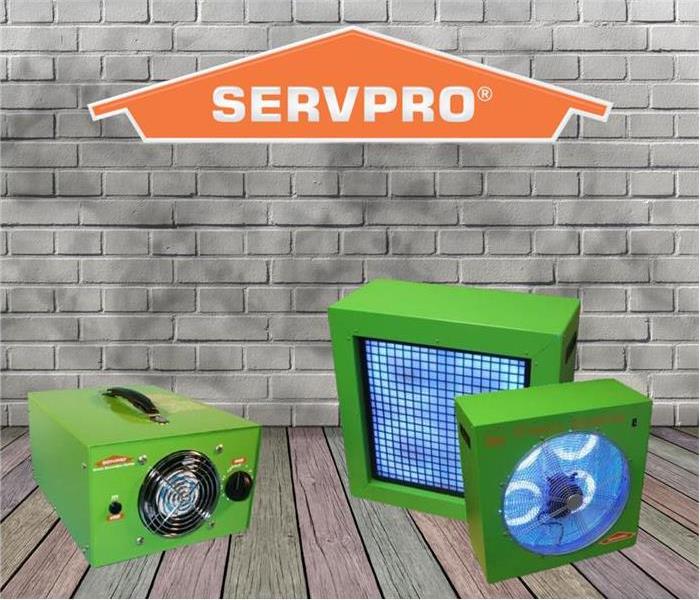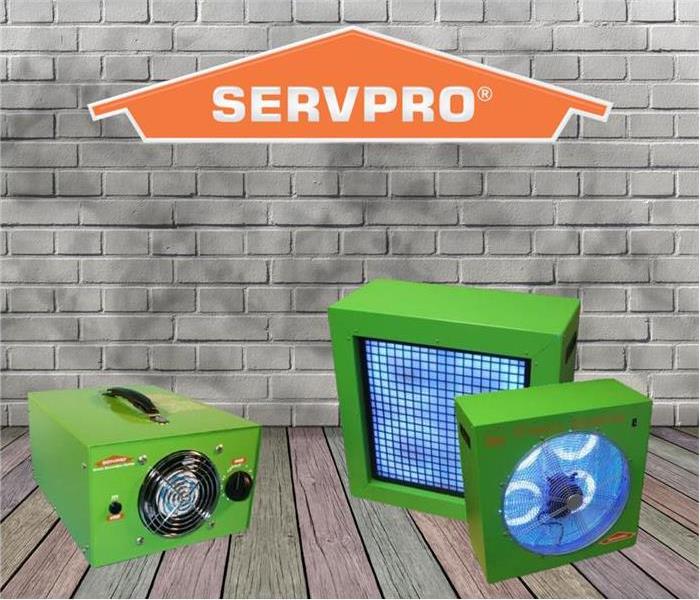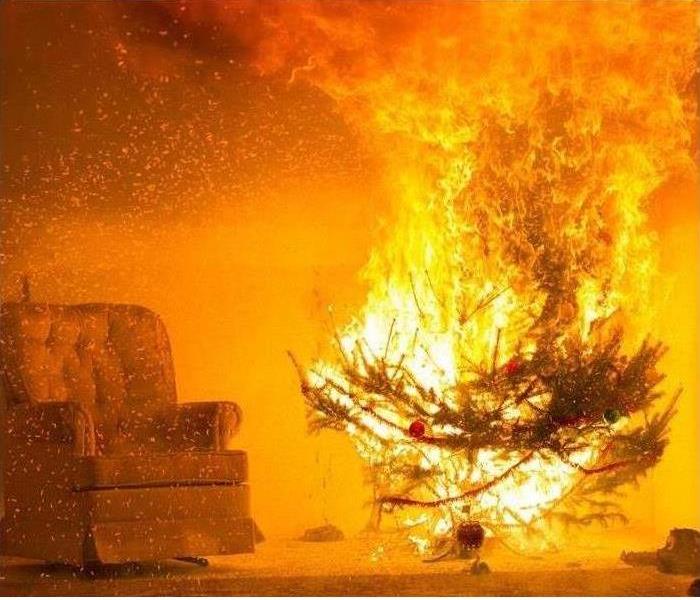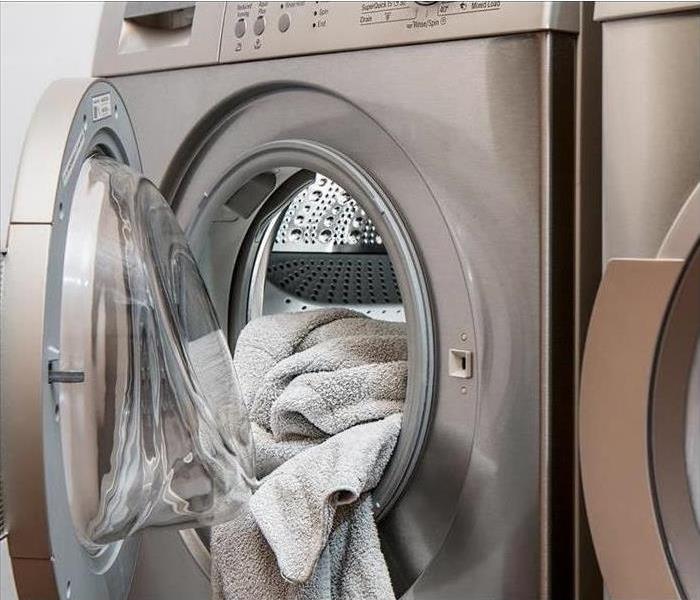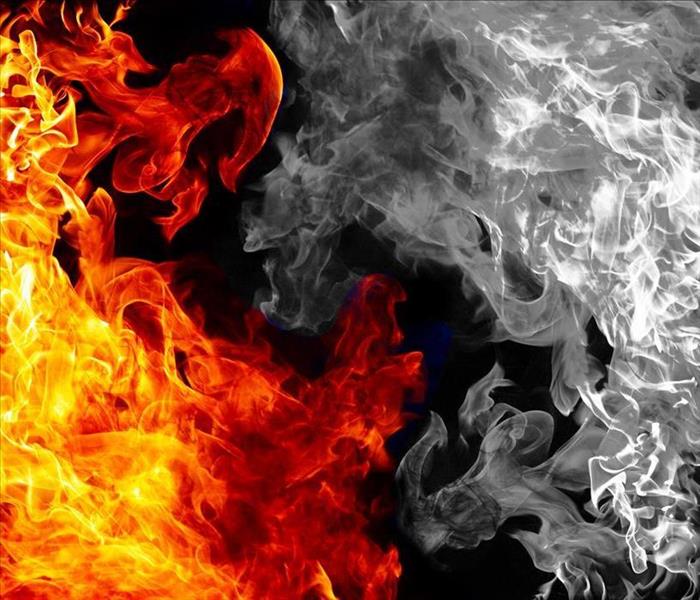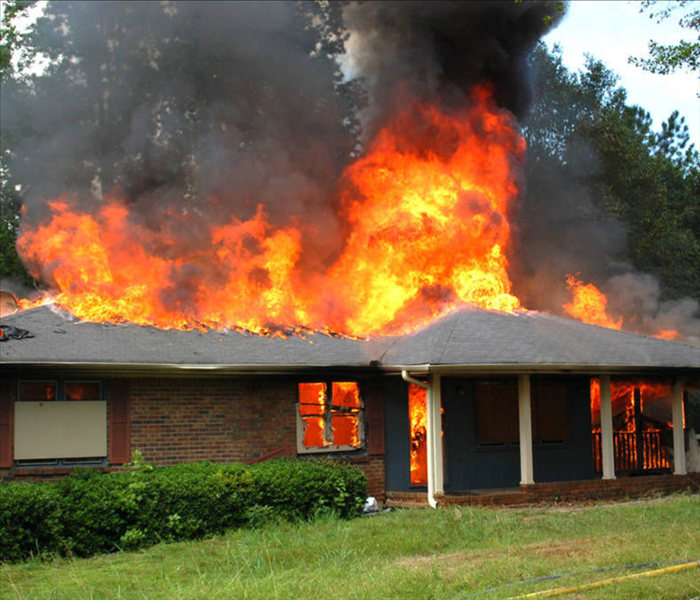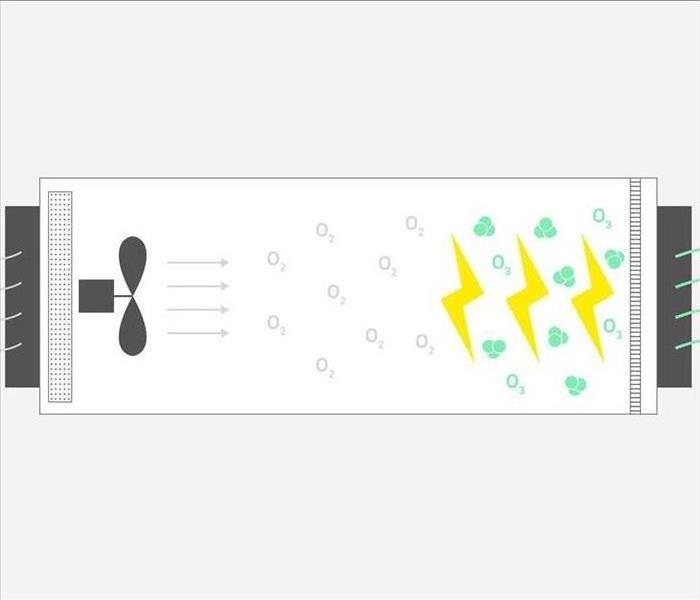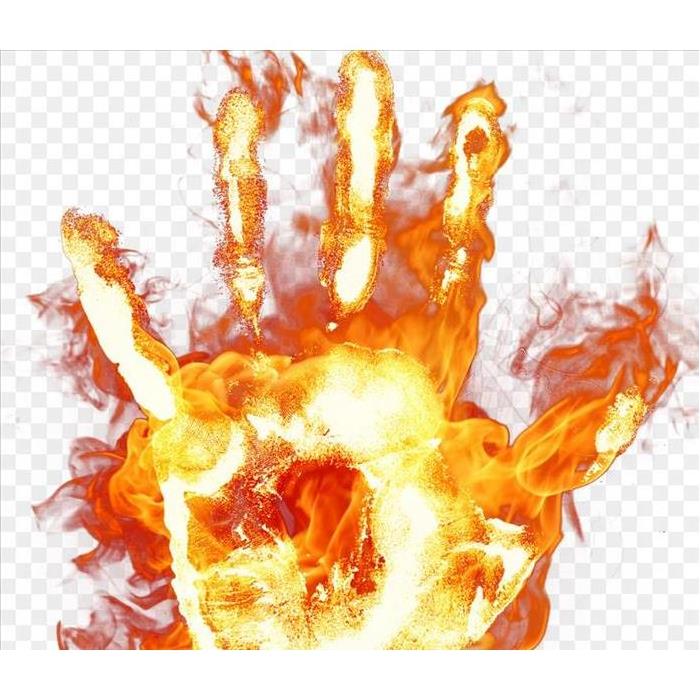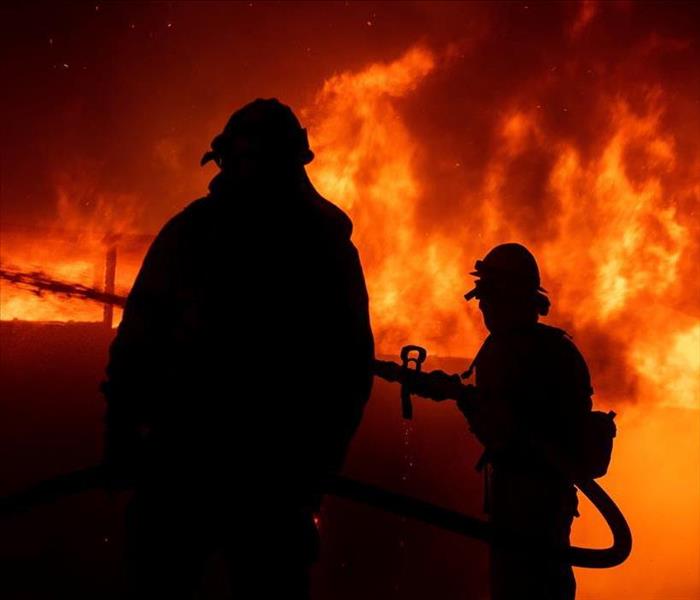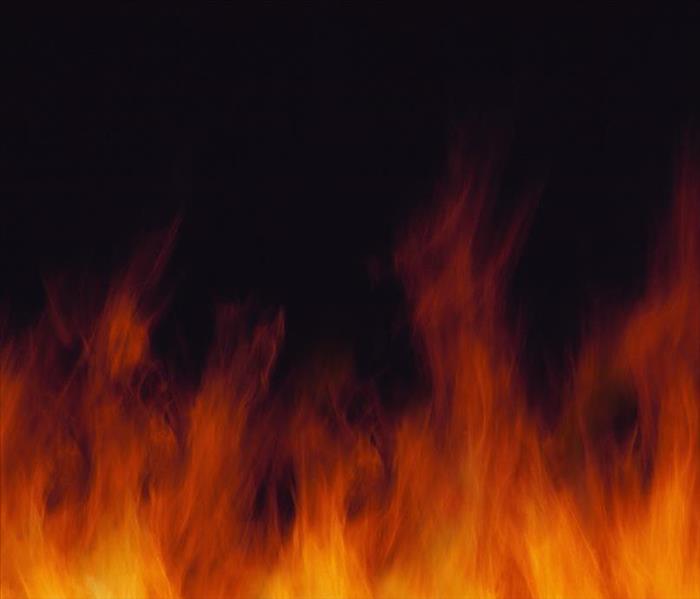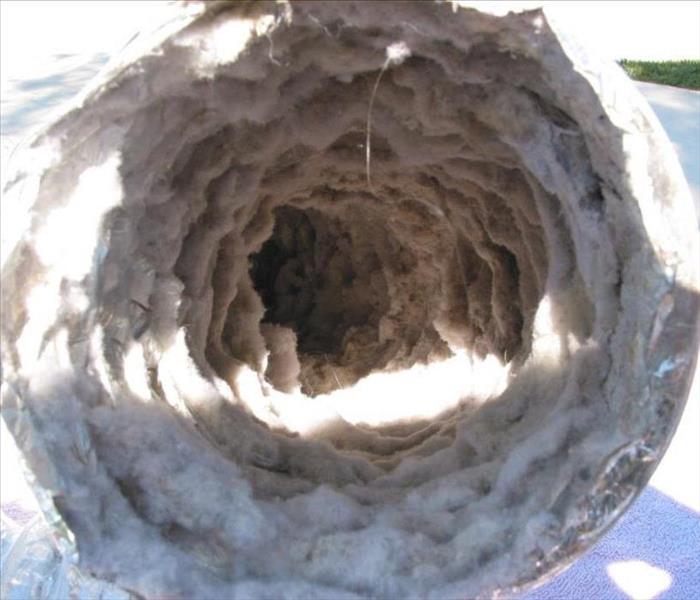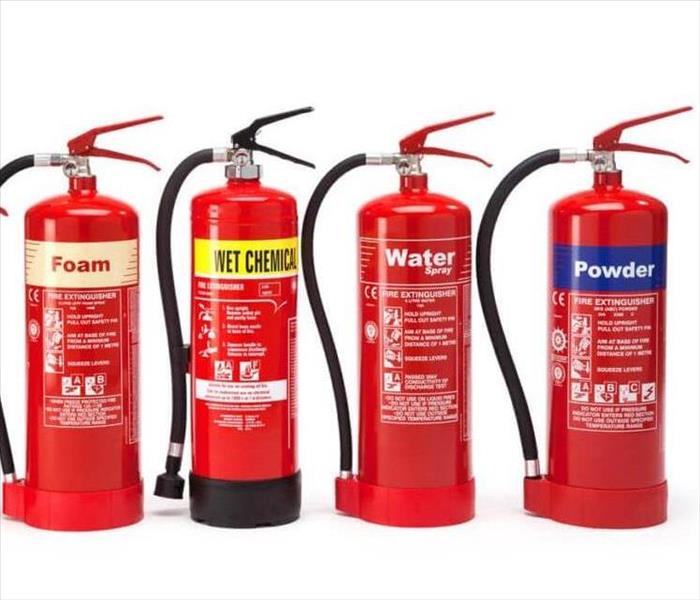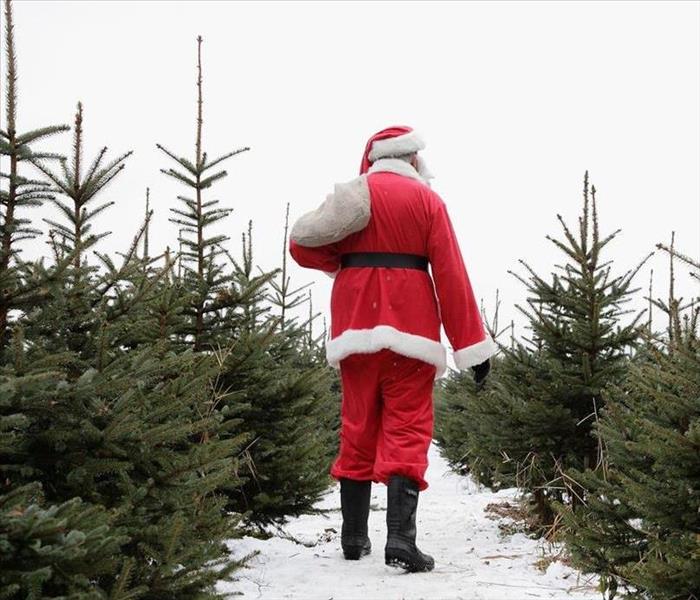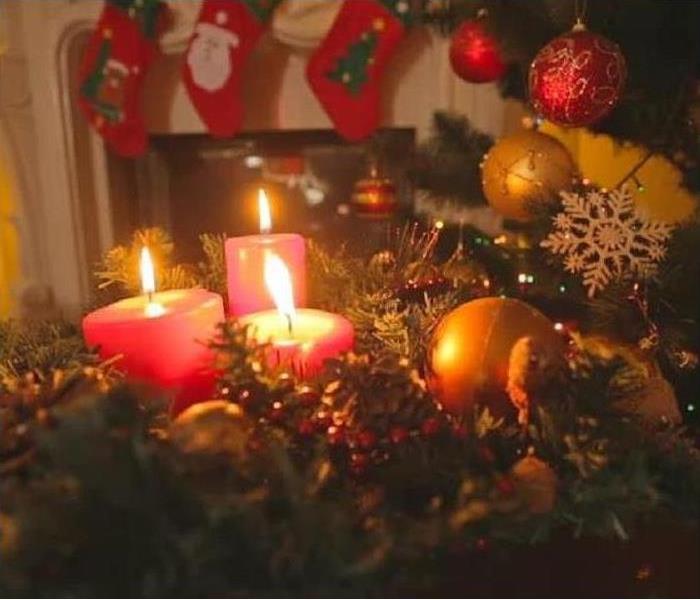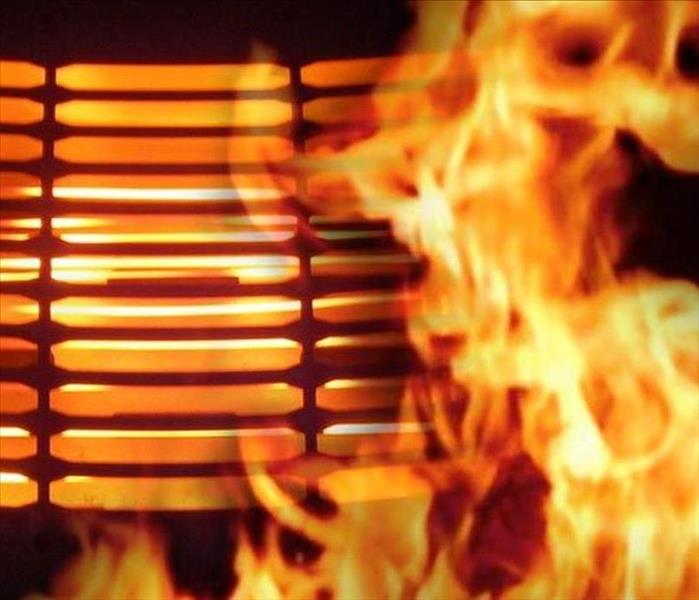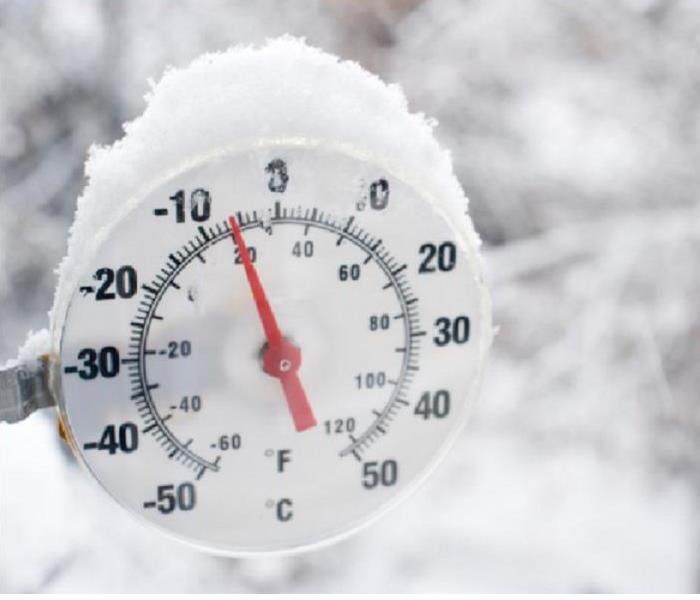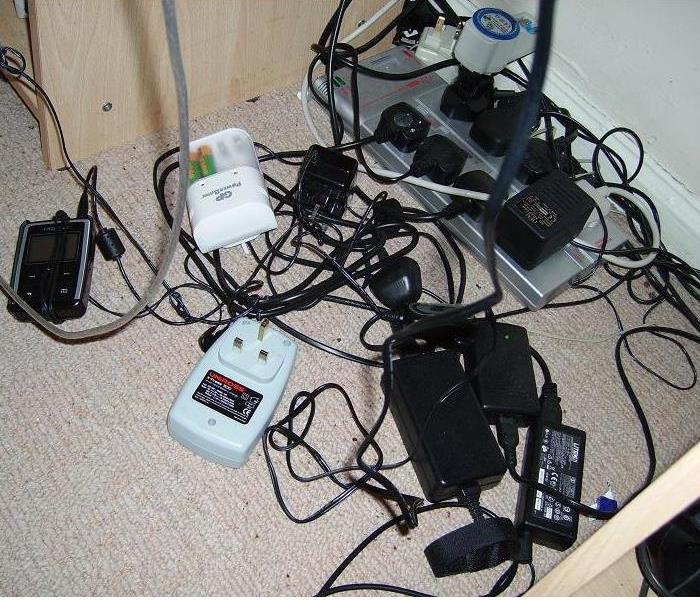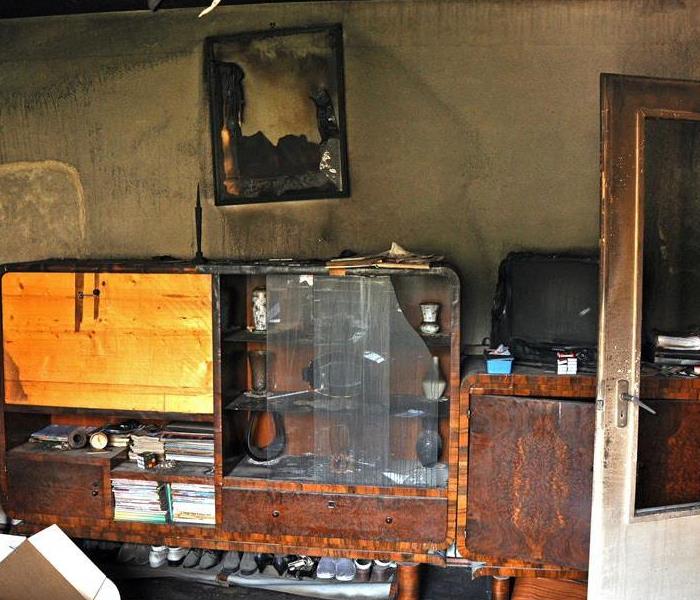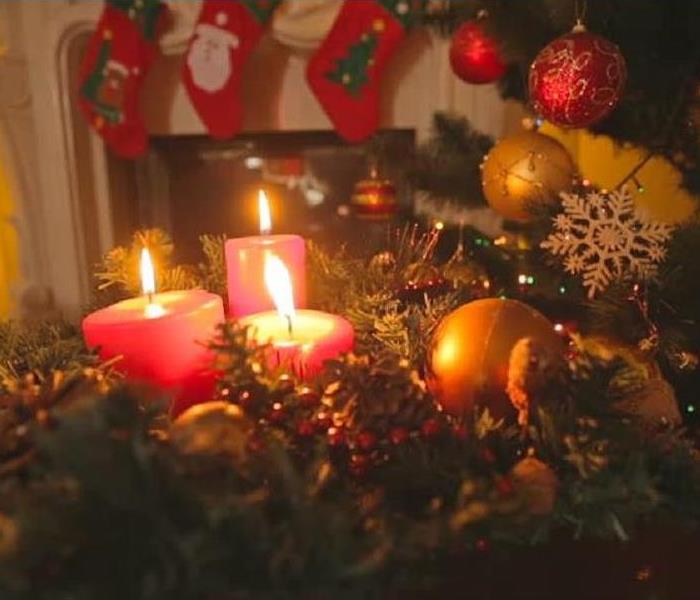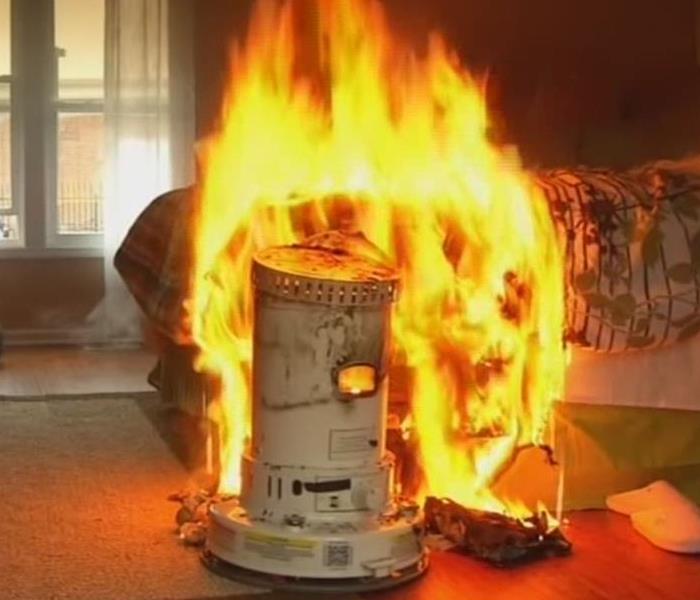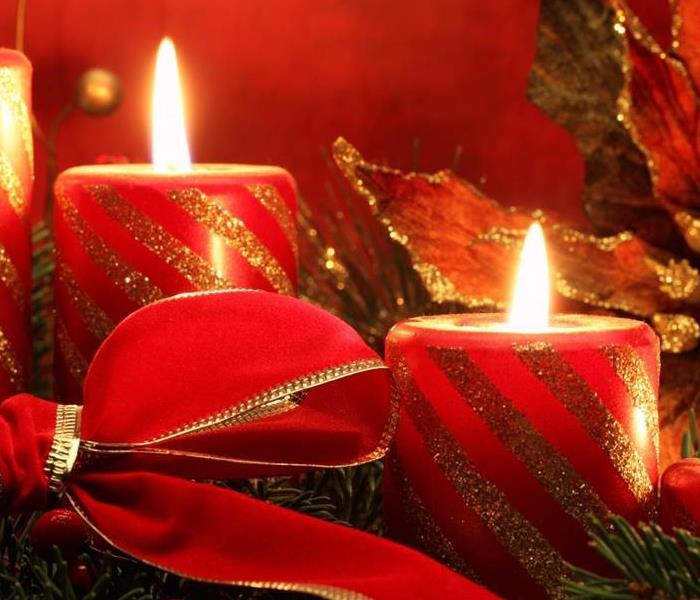Recent Fire Damage Posts
Restoring Peace of Mind: Fire Damage Restoration Solutions in Lincoln, NE
4/1/2024 (Permalink)
Facing fire damage can be overwhelming, but at SERVPRO of Lincoln, serving the Lincoln, NE area, we're here to help you navigate the restoration process with confidence.
- Prompt Response: Our team responds swiftly to fire damage emergencies, providing immediate assistance to minimize further damage to your property.
- Comprehensive Assessment: We conduct a thorough assessment of the fire damage and work with you to develop a customized restoration plan tailored to your unique needs.
- Expert Restoration: With years of experience and specialized equipment, we restore your property to its pre-fire condition, ensuring a safe and comfortable environment for you and your family.
Believe in SERVPRO of Lincoln for reliable and efficient fire damage restoration services in Lincoln, NE. Contact us today for immediate assistance and peace of mind.
Fire Restoration
3/9/2023 (Permalink)
Fire damage can be devastating to any home or business, causing both physical and emotional turmoil. Whether the fire was small or large, the aftermath can be overwhelming. Fortunately, SERVPRO of Lincoln offers comprehensive fire restoration services to help homeowners and business owners restore their properties after a fire.
SERVPRO of Lincoln’s fire restoration process begins with a thorough inspection of the property. This includes assessing the damage caused by the fire as well as any water damage that may have resulted from firefighting efforts. Once the inspection is complete, SERVPRO of Lincoln will develop a comprehensive restoration plan that outlines the steps needed to restore the property to its pre-fire condition.
One of the first steps in the restoration process is removing any standing water and drying out the affected areas. This helps to prevent mold growth and further damage to the property. SERVPRO of Lincoln uses industrial-grade dehumidifiers, air movers, and other specialized equipment to ensure that the drying process is as efficient as possible.
Once the property is dry, SERVPRO of Lincoln will begin the cleaning and restoration process. This includes removing soot, smoke, and other fire-related residues from walls, ceilings, and other surfaces. We use specialized cleaning agents and techniques to ensure that all residue is thoroughly removed, restoring the property to its pre-fire condition.
If necessary, we can also provide structural repairs and reconstruction services. This may include repairing damaged walls, ceilings, and floors, as well as replacing damaged electrical and plumbing systems. SERVPRO of Lincoln has the expertise and resources to handle all aspects of fire restoration, no matter how large or small the project may be.
In addition to its fire restoration services, SERVPRO of Lincoln also offers a range of other services to help homeowners and business owners recover from disasters. This includes water damage restoration, mold remediation, and storm damage cleanup. With its 24/7 emergency services, SERVPRO of Lincoln is always available to help in times of need.
Overall, if you're in need of fire restoration services, SERVPRO is the company to call. With its expertise, resources, and commitment to customer satisfaction, SERVPRO of Lincoln can help you restore your property to its pre-fire condition quickly and efficiently. Don't hesitate to reach out to SERVPRO of Lincoln for all of your fire restoration needs.
Fire Extinguisher Knowledge
6/30/2022 (Permalink)
Keep fire safety in mind by following a few simple safety tips. Enjoy time with your loved ones, and keep yourself and your family safe from fire.
Here is a significant fact that we should consider in our spaces.
How many fire extinguishers should I have?
Every home needs at least one fire extinguisher, and most should have at least two or three. The number of fire extinguishers you should have in your home depends on the size of your house, if you have a garage or workshop, and if your household is multi-level or not.
The minimum recommendation is to have a single extinguisher rated 2-A:10-B: C or higher in your kitchen, garage, or workshops, near doors used as an escape route, and on every level of your home.
Flames need fuel, oxygen, and heat to burn. Fire extinguishers are designed to remove one of these elements by applying an agent that either cools the burning fuel or releases or displaces the surrounding oxygen. Fire extinguishers contain either water or a smothering material, such as CO@; by pulling out the safety pin and depressing the lever at the top of the cylinder, the fire extinguishing material is released under high pressure.
Don't hesitate to call us; we would love to take care of you! SERVPRO of Southwest Irving is always at your service.
Cleanup After a Fire
1/6/2022 (Permalink)
What's next?
Few things are as devastating to any homeowners as a house fire. If your home catches fire, our team at SERVPRO of Lincoln works to aid you in the process of rebuilding. However, there are a few things you must do after a fire has occurred that applies to homeowners anywhere in the Lincoln area, or anywhere else.
Give Your Insurance Adjuster a Call
You must call your insurance company promptly after. Your agent will help you figure out what happens after the fire has been put out, and they will walk you through the process of finding the proper contractors. Your adjuster should assist you in finding a place to stay in New York while your home is no longer livable, and they can help you figure out the financial situation you are now in.
Calling in the Restoration Specialists
SERVPRO is a restoration company that helps people with their homes following a fire throughout the US. What makes a restoration company imperative is that you cannot just head back into your home after there has been a fire. There are numerous hazards that must be cleaned, boarded, and a variety of other issues that must be handled first. For example, the water used to put out the fire can cause water damage, a whole other problem to add to the list following a fire.
Sort Your Property
Once you have a restoration specialist handle the details inside your home and you’re cleared to enter, it’s time to sort your property out from what can be saved and what you must part with. There may be undamaged items in your home that you can salvage. There are many more that are unsalvageable, and those items will need to be sorted and disposed of.
Being the victim of a house fire is heartbreaking. It’s also a scary process to deal with, but you are not required to go through this alone. The people you hire at SERVPRO are there to help you with your new needs, we are here to make sure you know what to expect and how to handle it!
Fire Damage Restoration
10/12/2021 (Permalink)
Fires can be especially devastating to your home or business. After the fire trucks leave, your property will likely suffer from not only fire and smoke damage, but also widespread water damage and flooding from firefighting efforts. SERVPRO of Lincoln Professionals have specialized fire and water damage restoration training and experience to quickly clean up and restore your home to pre-fire condition. They also can remove the pervasive smoke odor and deep-clean soot from upholstery and carpet.
Why choose SERVPRO of Lincoln Professionals?
They're Faster to Any Size Disaster
SERVPRO of Lincoln Professionals are dedicated to responding immediately when you need help with a fire or water damage event. A fast response lessens the damage, limits further damage, and reduces cost.
They're Fire and Water Damage Specialists
They specialize in fire and water damage restoration, the cornerstone of our business. SERVPRO of Lincoln Professionals have extensive training and equipment to get your property back to pre-fire condition.
They Have a Restore vs. Replace Mentality
SERVPRO of Lincoln Professionals clean and restore your property using specialized equipment and cleaning techniques. Their "restore first" mentality reduces interruption and gets you back to your life.
3 Home Fire Safety Tips
10/1/2021 (Permalink)
A home fire occurs every 86 seconds in the United States, according to the National Fire Protection Association (NFPA). These fires result in thousands of deaths and injuries each year, along with billions of dollars in property damage. While the numbers are alarming, some of the harm caused by residential fires is avoidable. A strong home fire safety plan can improve your family's chances of escaping a fire safely and, in some cases, it may help you avoid one altogether. Learn three top ways to practice fire safety in the home from the experts at SERVPRO of Lincoln.
- Home Fire Prevention
The best way to stay safe from fires is to stop them from occurring in the first place. Start by implementing the fire-prevention measures below:
- Keep flammable materials away from heat sources. If you're using a portable space heater, keep it at least 3 feet away from flammable objects like furniture, blankets, electronics and anything combustible.
- Don't leave flames or smoking materials unattended, including fireplaces, stovetops, candles and cigarettes. Avoid smoking indoors, and never smoke in bed.
- Fix or replace frayed electrical cords or wires.
- Don't overload wall outlets or extension cords.
- Have your furnace or home heating source periodically inspected and kept in good working order.
- Make sure everyone in the household understands the importance of home fire safety and observes fire-safe habits, including your kids.
Get more fire prevention and safety tips from Ready.gov.
- Home Fire Safety Equipment
A good home fire safety plan includes having the right supplies and safety equipment on hand. These tools will be your first line of defense in the event of a fire, and they can dramatically improve your ability to react effectively.
- Install smoke detectors on every floor of your home, in every bedroom, and outside each sleeping area.
- Inspect and maintain your smoke detectors
- A fire extinguisher can keep small, containable fires from growing out of control. Have an extinguisher handy whenever you use cooking or heating equipment.
- Learn how to use a fire extinguisher
- Consider installing an automatic sprinkler system in your home.
- Fire Safety Planning
During an emergency, reaction time is critical. Beyond the equipment you need, everyone in your household should know what to do if a fire starts. Here are some tips to get you started:
- Create a fire safety plan that establishes at least two escape routes and a safe location away from the home where everyone can meet.
- Make an emergency communications plan to stay in contact during and after a fire.
- Practice your escape plan twice a year so everyone can act quickly when it counts.
- Teach children how and when to call 9-1-1.
Halloween Fire and Safety Tips
10/1/2021 (Permalink)
For kids, Halloween is often one of the most anticipated holidays of the year. Dressing up, trick-or-treating, candy, parties, hayrides and corn mazes make for great fun and amazing childhood memories. Unfortunately, Halloween has become a holiday with increasing numbers of home fires.
According to the National Fire Protection Association (NFPA), decorations were the first item ignited in an estimated average of 860 reported home structure fires every Halloween between 2009 and 2013. These fires resulted in an average of 13 million dollars in direct property damage per year. At such a high cost, it’s crucial that you take the necessary steps to help prevent a fire from igniting in your home this season.
To help you enjoy a safer holiday, follow these important Halloween safety tips from the experts at SERVPRO of Lincoln.
HALLOWEEN SAFETY: DECORATIONS
Use these tips to help prevent your Halloween decorations from catching fire:
Pumpkin Safety
The traditional jack-o-lantern features a smiling or spooky face that’s illuminated from within by a candle. Placing candles inside a cleaned-out pumpkin is a fire hazard. In fact, any lit candle left unattended is a Halloween fire hazard. If they’re inside pumpkins, they can tip over, ignite surrounding materials and cause a fire. To stay safe, use a battery-operated candle or LED light to illuminate your festive pumpkins.
Candle Safety
Using paper bag luminaries or lining a mantle, porch stairs or windowsills with lit candles can create an eerie effect for Halloween night. However, this type of decorating is a fire hazard and poses a risk of injury to you and your guests. To help prevent a fire from decorative candles, replace them with battery-operated, no-flame candles that still provide the same spooky ambiance.
Decoration Safety
Some decorations, both inside and outside of your home, can be dangerous if left near a heat source. Straw, hay bales, corn stalks and other dry materials are flammable. To protect your home from a fire, keep these decorations away from any kind of heat source, including fireplaces, wood-burning stoves, candles and outdoor fire pits.
HALLOWEEN SAFETY: YARD MAINTENANCE
Halloween has the potential to bring plenty of residents through your lawn. To help keep trick-or-treaters and their parents safe, check that your yard is properly maintained and has adequate lighting. Before night falls, complete these tasks:
- Remove large amounts of debris, including leaves or sticks, to help reduce the risk of trips and falls.
- Check that the exterior lights are working properly, including any path lights or Halloween decorations.
- Ensure that steps and railing are secure, if necessary.
By following these tips, you can help keep everyone safe. We hope you have a happy and fun Halloween this year!
Unfortunately, accidents still happen. In the event that a fire broke out in your home, call on the experts at SERVPRO of Lincoln. We’re available 24/7 every day of the year to get your home back to normal after a disaster. With the proper expertise, tools and innovative equipment, we can restore your home fast. Learn more about our residential fire and smoke damage removal services before the unexpected happens.
How To Recover From Fire Damage
10/1/2021 (Permalink)
A fire can sweep through a commercial building quickly. The sooner the flames are put out, the less damage there will be. However, water is one of the main ways to stop a fire, and water damage can sometimes wreak just as much destruction on a property as the fire itself.
Water damage after a fire can occur from the water hoses firefighters use, as well as the activation of the built-in sprinkler systems inside a commercial building. Find out how your business can recover from both types of water damage after a fire with help from the experts at SERVPRO of Lincoln.
THE TRUTH ABOUT WATER DAMAGE
Excess water can soak everything inside a building, including equipment, electronics, upholstery, flooring and building materials. The longer water sits, the greater the risk that your building's contents will be permanently damaged or destroyed. Beyond the physical damage water can cause, moisture can also cause mildew and mold growth. If mold has an opportunity to spread in your business, you could face additional damage or restoration costs in the hundreds or thousands of dollars. That's why immediate water extraction after a fire is crucial.
Whenever water damage occurs, take the following steps as soon as possible:
1. DOCUMENT THE DAMAGE
After officials have declared it safe to re-enter the building, document the fire and water damage. Create a list of all items that were damaged or destroyed, and take plenty of photos before attempting any clean-up. Provide your insurance with as many details as possible about your losses so they can properly adjust your claim.
2. CONTACT YOUR INSURANCE COMPANY
Notify your insurance company as soon as possible, and advise your agent about any repairs you intend to make immediately. The agent may advise you to wait for an adjuster to visit your commercial property before you make repairs or begin the clean-up process.
3. REMOVE EXCESS WATER
Open doors and windows to allow plenty of fresh air to circulate and dry your building. If possible, use a sump pump to remove excess water.
4. PREVENT FURTHER DAMAGE
Mold and mildew can begin to grow within one to two days of water damage. To prevent extensive damage to your property, contact a professional water restoration company right away.
WHAT TO EXPECT FROM WATER RESTORATION SERVICES
In order to minimize damage, removing excess water as quickly as possible is of the utmost importance. A professional water restoration company will work to save as much equipment as they can, including saving your business's electronics after water damage. They'll also restore your commercial property back to its former state to help you get back to business.
When you call for water restoration services, you can expect professional technicians to help in the following ways:
- Use specialized equipment to quickly remove all water.
- Thoroughly dry affected areas, including wall cavities, flooring and other building materials.
- Get rid of remaining moisture in the building by dehumidifying affected areas.
- Conduct an expert mold and mildew inspection and provide treatments, if necessary.
- Conduct thorough bacteria inspection and treatment to ensure the building is safe to return to.
- Restore the building and any items that are salvageable.
Dealing with water damage after a fire can be challenging and stressful. When you call in the professionals at SERVPRO of Lincoln, you won’t have to go through it alone. Our commercial water damage services use state-of-the-art equipment to get your business up and running again. With a commitment to be at your side every step of the way, we'll work with you to develop a comprehensive plan that restores your building and helps you get back to business.
Prevent Fires!
6/23/2021 (Permalink)
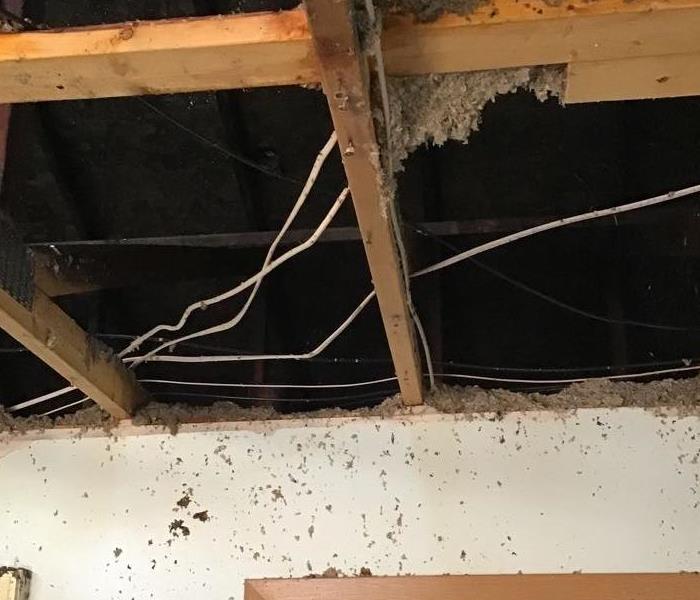 We are here to help!
We are here to help!
Lowering Your Risk for House Fires is Our Priority!
Our team is here to help you lower your risk for a house fire and provide you with helpful tips that you can implement into your family’s routine today.
Make sure you have working smoke detectors. Keep your smoke detectors in good, working order by changing your batteries regularly (twice a year), testing them monthly and changing the detectors completely every 10 years. It’s important to note that how often your detector should be replaced is dependent on the brand, so check the packaging for the most accurate information.
Do NOT leave your candles burning. This is easy, and it’s important because many house fires each year are the result of candles. Keep these decorations away from spots in your home where kids or pets can impact them. Also, consider switching to a battery-operated candle for a similar effect.
Make maintaining your home’s natural gas furnace a priority. A yearly checkup is important because sometimes natural gas furnaces may seem like they’re working well but have issues that you can’t see. Clogged vents and rusted blades can result in a fire.
If your home is damaged due to a fire or any other cause, you can always count on us for restoration assistance. CALL SERVPRO OF LINCOLN TODAY!
SERVPRO of Lincoln Top 10 Fire Hazards in the Home
12/29/2020 (Permalink)
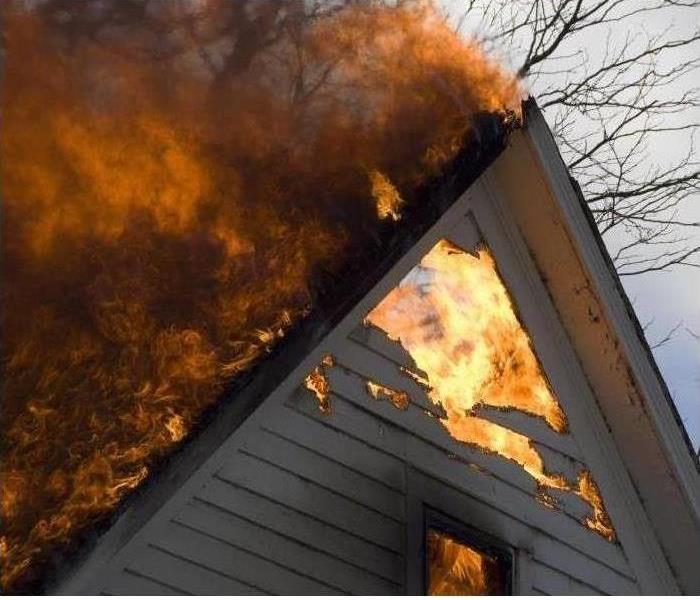 Flames coming out of roof
Flames coming out of roof
while the expert team of SERVPRO of Lincoln is here to help if you experience a fire disaster below you will find the top 10 Fire Hazards in the Home.
1. Electrical Outlet Issues
The top cause of House Fires in the United States stem from issues with electrical outlets. In 2020, we are using more electronic devices than ever, and doing so we oftentimes are using too many on a single outlet. To help prevent fires be sure to not exceed your voltage on a single outlet in your home.
2. Outdated Home Wiring
Household wiring should be checked routinely to avoid circumstances that trigger major fire damage in your home. Often times wiring that is outdated, worn, or even compromised from animals can cause fire hazards in and outside your home.
3. Decorative Lights
With Halloween and Christmas right around the corner, be sure to take the proper precaution when using decorative lights including outside lights, plugs, surge protectors, extension cords, and turning off your Christmas Tree Lighting when you are not home to minimize risks.
4. Hair Products
When in a rush, do not forget to unplug your styling products. A simple mistake can result in huge damages. Make sure that your curling iron and hair dryers are off and placed on heatproof material to help reduce the chances of a fire.
5. Toasters
Proper care of your toaster can help to prevent house fires. Crumbs inside the toaster can be dangerous as they can cause sparks which leads to hazardous problems in the kitchen. Make sure to clean your toaster routinely.
6. Candles
We all love candles and aromas however we need to be cautious of placement and be sure to put them out prior to going to bed or leaving the house. Always try to place candles in holders that prevent them from falling on surfaces or tabletops.
7. Washer & Dryers
Washer and Dryers are a leading cause of fires. Routine maintenance and cleaning can help to prevent fire hazards by cleaning filters and vents as well as the outside vents of the home.
8. Smoking
If you are a smoker or someone smokes in the home, try to do so outside. Always keep lighters and matchsticks out of reach of your children as this is one of the top causes of home fires.
9. Dust in Electric Sockets
This is a recurring process as the dust piles inside electrical sockets and if not cleaned regularly may ignite and result in fire hazards.
10. Electric Blankets
While they do wonders to keep us warm in the winter, Electric Blankets can cause fires. Be sure to use an electric blanket that doesn’t have too much wear and tear. When not in use, do not fold the blankets as it helps prevent electrical issues that lead to fire hazards.
Should you experience Home Fire Damage, let the experts at SERVPRO of Lincoln help restore your home “Like it never even happened.” With our 24/7 emergency dispatch, we will have someone on-site quickly to access the damage and help you in your time of need.
Make Sure You’re Practicing Fire Safety Around the House | SERVPRO® of Lincoln
12/29/2020 (Permalink)
Practicing fire safety is one of the best methods that individuals can use to keep themselves and their households protected against a disaster. Fires can happen for a plethora of reasons, but by implementing prevention tips, their likelihood of occurring is significantly reduced.
There is an abundance of fire safety information around the internet, but much of it is in different locations. In order to make researching and practicing fire safety easier, we put it together in one place for your ease of reference.
What Tips to Know About Fire Safety
Frequently Check Smoke Detectors. Having a working smoke alarm system in your home is the top tip that experts recommend for fire safety. Smoke alarms significantly reduce the chance of becoming injured in a fire and can alert the entire household at once if it is time to escape.
Have a Fire Escape Plan. Evacuating the house quickly in the event that the smoke alarm sounds is essential due to how quickly fires can spread. Make sure everyone in the household is aware of their options for escape routes, and rehearse your evacuation regularly.
Know How to Operate a Fire Extinguisher. Keeping a fire extinguisher stored in a convenient location and knowing how to use it will give you the power to put out a fire before it gets out of hand if it is safe to do so. Make sure to purchase the correct classification for the type of fire you are likely to experience.
Never Leave Flames Unattended. Many of us encounter open flames every day on a small scale, such as when a gas stove is turned on or a candle is lit. Though small, these flames still have a large potential for error, and they should never be left in a room unsupervised as they can quickly spread.
Keep a Closed-Door Policy. The most deadly fires are the ones that break out during the early morning hours, mostly due to the reduced reaction time of sleeping family members. However, one key way to combat this is by closing bedroom doors before going to sleep. The door can slow down flames, allowing more time for everyone to execute the escape plan.
Causes and Prevention Tips for Wintertime Fires | SERVPRO® of Lincoln
12/29/2020 (Permalink)
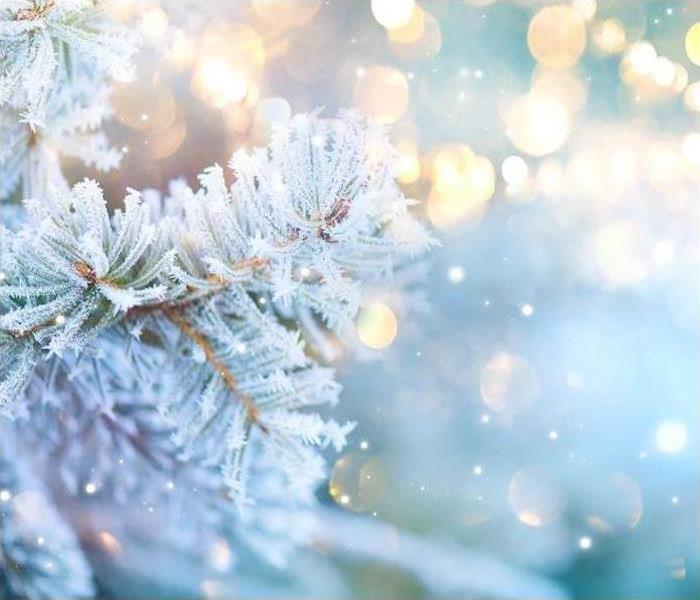 Practicing prevention is the best way to reduce the chance of a fire, however if you do experience a loss contact SERVPRO of Lincoln.
Practicing prevention is the best way to reduce the chance of a fire, however if you do experience a loss contact SERVPRO of Lincoln.
Wintertime fires are a big concern for individuals due to their statistical likelihood of occurrence.
House fires occur the most in the winter, and the increased risk makes it important to understand the causes and prevention tips in order to stay safe and fire-free this season.
Reasons for the High Rate of Winter House Fires
An Increase in Cooking
At any time of the year, cooking is found to be the leading cause of house fires in the country, but this holds especially true for the winter season. Because there are many holiday meals, occasions for baking and a general increase in cooking in the winter, it is important to exercise caution at any time the oven or stove is in use.
The Risk of Heaters
Using extra heating methods in addition to the central heating unit is quite common, but it can increase the fire risk if safety precautions are not taken. Heating is the second-highest fire cause during the winter months, typically due to unsafe fireplace use and the use of heaters that do not have automatic safety switches to prevent a fire from starting.
Candles and Decorations
While the safety of decorations is not something commonly thought of, during the winter months, it becomes gravely important. Open flames from holiday candles can quickly spread if left unattended, and electronic lights and other decor can overheat or spark if they are not well-maintained.
Preventing Winter Fires From Occurring
The many things that can contribute to a winter fire are important to note, not so that they can be avoided but so they can be completed safely. By understanding what is behind these fires and following the below prevention tips, individuals can do a better job at being fire-safe:
- Check smoke alarms once every 30 days and replace every 10 years.
- Always monitor open flames.
- Select space heaters with automatic shut-offs in case they tip over.
- Utilize a screen every time you use a fireplace.
- Draft and practice an emergency escape plan with your household.
The Importance of Proper Restoration After a Fire | SERVPRO® of Lincolm
12/29/2020 (Permalink)
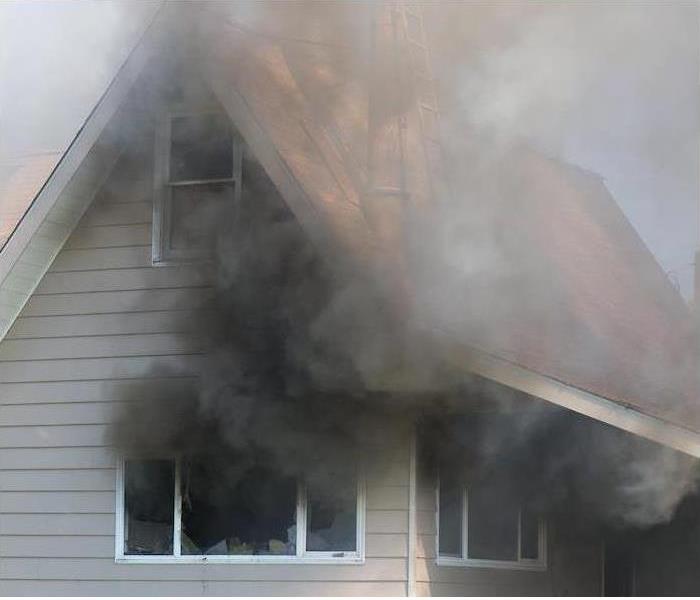 Having a team on your side after a disaster can help relieve stress. SERVPRO of Lincoln is here to help when a fire strikes.
Having a team on your side after a disaster can help relieve stress. SERVPRO of Lincoln is here to help when a fire strikes.
Fires are a concern for homeowners year-round, but with the approaching winter, this is a good time of year to ensure you are properly prepared. The rate of home fires peaks in the wintertime, so it is important to stay vigilant.
Thankfully, there are some things you can do in advance, such as practicing a fire evacuation plan with every member of your household and determining what restoration company you would like to work with to restore your home and belongings. That way you can call right away to get the process of restoring your home started.
The Types of Cleaning Fire Restoration Requires
Over the years, we have developed a cleaning system for fire restoration that handles your home, its contents and your air quality, ensuring the cleanup is thorough and your things are fully restored to their pre-fire conditions. These are the cleanings and services we provide:
Structural Cleaning
Structural damage in a fire can affect almost every aspect of a home, including floors, walls and ceilings. By performing initial testing, we can determine the severity of the damage and what equipment we will need to utilize for restoration. We can provide restructuring, cleaning and even paint preparation for most surfaces in the home.
Content Cleaning
Using wet and dry cleaning equipment, we are able to restore many of your home’s contents during the process as well. This is often more cost-effective than replacing your items and allows you to keep your belongings intact. We can fully clean and deodorize many items, such as kitchen wares, bedding, upholstery and more.
Deodorization Services
The lingering odors from a fire are not just a nuisance—they can be dangerous, too. Smoke and soot exposure are associated with negative side effects, making it vital that the air is scrubbed and purified properly following a fire. Thankfully, we have the technology and expertise to handle this for you, so you do not have to worry about the health of your family due to poor air quality in the home.
It's Candle Fire Season!
12/7/2020 (Permalink)
Be Cautious When Using Candles
Yes, that soft light and aromatic fragrances that fill the room from a lit candle can be an easy way to create the atmosphere that you want in your home. However, candles can also become a safety hazard if they are not used properly. Candle fires are common, but the following tips can help you avoid them.
1. Don’t Leave Burning Candles Unattended:
It may seem like an annoyance to extinguish a candle every time you leave the room. However, leaving it burning could result in a candle fire if something gets too close to the flame or if it burns too low. It is best to blow out candles before going to bed at night, even if the candle is in the same room you sleep in..
2. Keep Them Away From Flammable Items:
When you are using a candle, you should be sure to have the area free of flammable objects. This can include papers as well as fabrics such as curtains and bedding. These types of items should be at least a foot away from any candles that are in use. Flammable liquids should be kept even further away.
3. Keep Them Out of Reach of Pets and Children:
Both children and pets often come with an excess of energy and curiosity. For this reason, it can be easy for them to inadvertently start a candle fire. Keep burning candles in an area that are not within reach of a child or pet, especially unsupervised!
4. Use an Alternative:
Perhaps the easiest way to prevent a is simply not to use candles at all. There are a variety of other ways that you can achieve a more relaxing home environment. If you are only interested in adding a nice scent to your home, a wax warmer is a great option. One great option is a diffuser. Diffusers are a great alternative to candles and make you house smell fantastic!
While these tips can help you prevent an emergency, accidents can still occur. Whether it is small or large, fires often require smoke cleanup and some repairs. If this happens, a fire damage restoration company like SERVPRO can help return your home to its preloss condition making it "Like it never even happened."
What is Ozone?
12/7/2020 (Permalink)
If you have ever had a fire on your property and had SERVPRO come out to restore, you will know what an ozone generator is. For those who have not, an ozone generator is a machine that charges the air around it creating O3 out of the O2 molecules we breathe.
What We Use Ozone For
The primary function that we use an ozone generator for is the eliminate odors, especially odors caused by fires. We can use this technique of odor removal in many different cases such as, clothing, furniture, and entire rooms no matter the size. While the odor removal works great, there is a downside to using ozone in excess.
Precautions to Ozone
As stated earlier, ozone is different from the air we breathe. This reaction makes O3 poisonous if it is ingested in excess. This is why we close off the area that is being deodorized during the process. You can trust that we take every precaution necessary to keep our customers and employees safe.
What is Ozone?
12/7/2020 (Permalink)
If you have ever had a fire on your property and had SERVPRO come out to restore, you will know what an ozone generator is. For those who have not, an ozone generator is a machine that charges the air around it creating O3 out of the O2 molecules we breathe.
What We Use Ozone For
The primary function that we use an ozone generator for is the eliminate odors, especially odors caused by fires. We can use this technique of odor removal in many different cases such as, clothing, furniture, and entire rooms no matter the size. While the odor removal works great, there is a downside to using ozone in excess.
Precautions to Ozone
As stated earlier, ozone is different from the air we breathe. This reaction makes O3 poisonous if it is ingested in excess. This is why we close off the area that is being deodorized during the process. You can trust that we take every precaution necessary to keep our customers and employees safe.
Tree Safety
12/7/2020 (Permalink)
The Christmas season is in full swing. During this time each year, the traditional Christmas tree fills the family room surrounded by presents. BE CAREFUL - Christmas tree fires are infrequent, but they can happen. Listed below are a few good measures that will help ensure your home’s safety:
• Make sure you pick a healthy tree; trees with brown needles indicate dryness.
• Make sure your tree is placed in a sturdy stand to prevent it from falling over.
• Make sure your stand has an adequate basin for water.
• Make sure to check and water your tree daily.
• Check your lights to make sure they are fire resistant and supported by a national testing organization.
• Keep your trees a safe distance from any heat source.
• Make sure that the lights and any extension cords used are in good working condition; look for and replace damaged wires.
• Check all the bulbs to make sure they are working properly.
• Make sure you have adequate smoke alarms in the area and they are working properly.
The SERVPRO of Lincoln team wants to ensure that everyone has a safe and joyous season. In the unlikely event that a fire were to occur, know that the SERVPRO team has your back!
Cleaning Contents After a Fire
10/26/2020 (Permalink)
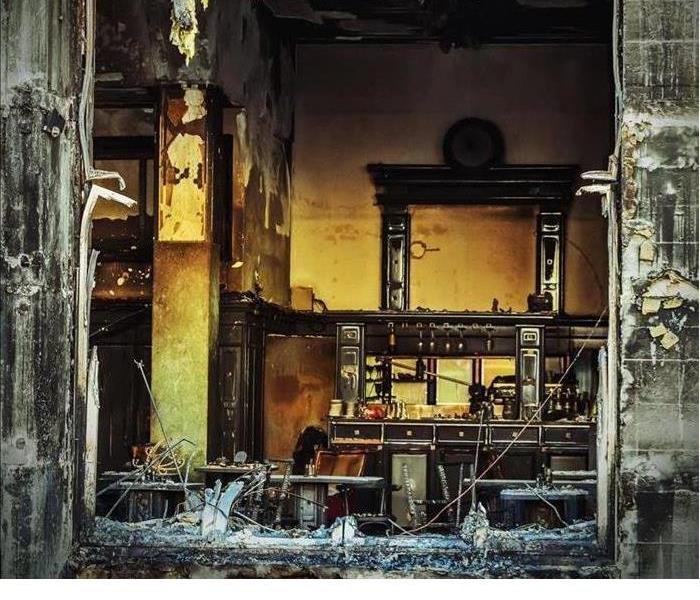 Fire Damaged Contents and building
Fire Damaged Contents and building
- Make Sure It's Safe To Start
Your first concern in every fire damage restoration disaster is safety. SERVPRO of Lincoln takes steps to make sure all workers entering your home or business after a fire are safe. It is important that the structure is safe before the evaluation and restoration process begins.
Also, keep in mind that, after a fire, indoor air contains floating smoke and soot particles. Smoke/soot particles are Products of Incomplete Combustion (PIC). These are carcinogens and are dangerous. When cleaning up smoke/soot, it is important to wear a respirator, such as an N-95 or N-100. Using gloves and other protective clothing will also protect against soot exposure. Ventilation is key to letting the contaminants in the air outside.
- Evaluating Damaged Contents
The next step is to determine which items should be cleaned and where, as well as which items to discard. Cost and antique value are key consideration factors. SERVPRO inspects the affected items as quickly as possible, as soot can produce further damage or corrode contents and appliances in a matter of hours or days, depending on the material.
In many cases, contents that have been damaged directly by the fire or by excessive heat should not be discarded until inspected. SERVPRO knows how to clean smoke damage from salvageable items.
Most textile goods like draperies and bedding will be taken to our laundry division or dry-cleaning facility. Other contents that can be restored, such as furniture, may be cleaned within the home or sent to our facility.
Food items must be treated with caution. Any open items should be thrown away. Unopened items in original packaging that were away from the heat can be considered safe. If there is any doubt, throw the items away.
Keep in mind that melted or discolored plastic items can’t be restored, only cleaned.
- Inventory Of Your Contents
If a “pack out” (removing contents out of the structure where damage occurred) is necessary, our SERVPRO technicians will keep careful records for items taken, location of the items, and condition of the items when removed. In other cases, we may determine that conditions allow for cleaning and storing the contents within the home, or perhaps a garage if property has one. An inventory of all discarded items is essential to receiving monetary reimbursement when filing an insurance claim.
SERVPRO will perform testing to determine the appropriate product to clean your contents. Today’s restoration professionals will use environmentally friendly products for all cleaning and restoration processes. This is an important consideration when choosing a restoration company.
SERVPRO begins to remove soot from each restorable item — either in the home or at our facility. The cleaning method depends on the item, such as furniture, kitchen utensils, dishes, toys, clothing, bedding, draperies, and more.
Pungent odors come with smoke/soot damage. After the cleaning process, most of the smoke odor will be eliminated. Yet, if there is still a small odor, we may add an additional step to the restoration process. This could include ozone or hydroxyl deodorizing.
- For Fire Damage Cleanup and Restoration, Call SERVPRO of Lincoln at 402.466.4004
When the contents of a home or business are damaged by smoke/soot, mitigating the fire damage, cleaning, and restoring the contents to its preloss condition is a job for restoration professionals. SERVPRO of Lincoln technicians know how to clean smoke damage from contents quickly, ethically and professionally. When you call us, we’ll mitigate the loss and restore your property using state-of-the-art equipment and techniques.
Tips on extinguishing a Grease Fire
10/6/2020 (Permalink)
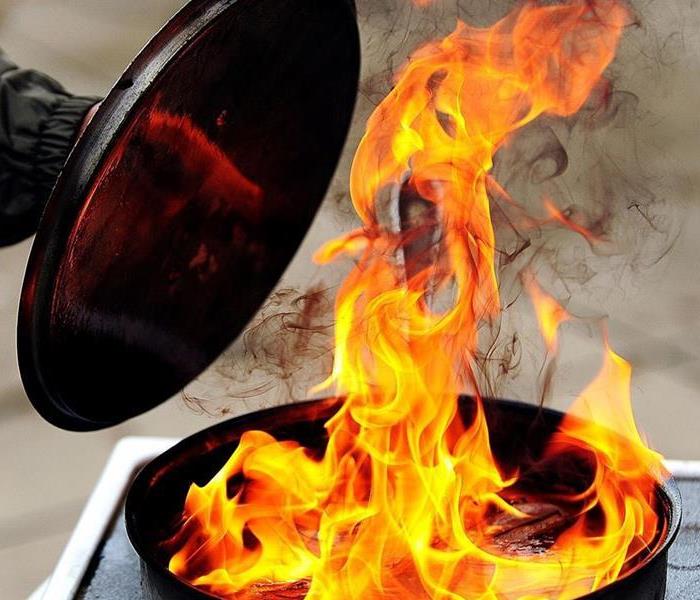 Be careful while cooking
Be careful while cooking
Cooking is the number one cause in home fires and injuries. Annually, there are 160,000 cooking fires caused by ignition of food or cooking materials.
Knowing how to smother a grease fire can help keep you, your family, and friends from getting hurt or having a severe house fire.
If A Grease Fire Starts:
- Cover the flames with a metal lid or cookie sheet. Leave the cover on until it has cooled.
- Turn off the heat source.
- If it’s small and manageable, pour baking soda or salt on it to smother the fire.
- As a last resort, spray the fire with a Class B dry chemical fire extinguisher.
- Do not try to extinguish the fire with water.
- Do not attempt to move the pot or pan outside.
DO NOT use flour, baking powder, or other cooking powders that resemble baking soda or salt. They act differently, and could make the fire worse.
If You Are Unable To Extinguish The Grease Fire:
- GET OUT!! You need to leave as soon as possible to prevent injury or loss of life
- When you leave, close the door behind you. This will help contain the fire inside.
- When you get to a safe distance from the fire, call 911 right away.
- Don’t re-enter your home until it has the “all clear” from the fire department.
Tips To Prevent Grease Fires:
- Stay in the kitchen while you’re cooking. One of the leading causes of kitchen fires is unattended cooking.
- Don’t cook if you’re exhausted or inebriated.
- Keep anything that can catch on fire away from your stovetop.
- Remove as much moisture from the food, and don’t add frozen foods to hot oil.
- Keep an eye on the temperature of your oil. If you see smoke or smell oil that means your oil is too hot. Turn off the burner and let it cool down.
- Heat the oil slowly.
- Add food gently, so there is no splashing.
- Keep a lid in arms reach in case of a fire.
- Always keep children and pets away from the stove while cooking.
How to Maintain Your Fireplace
10/6/2020 (Permalink)
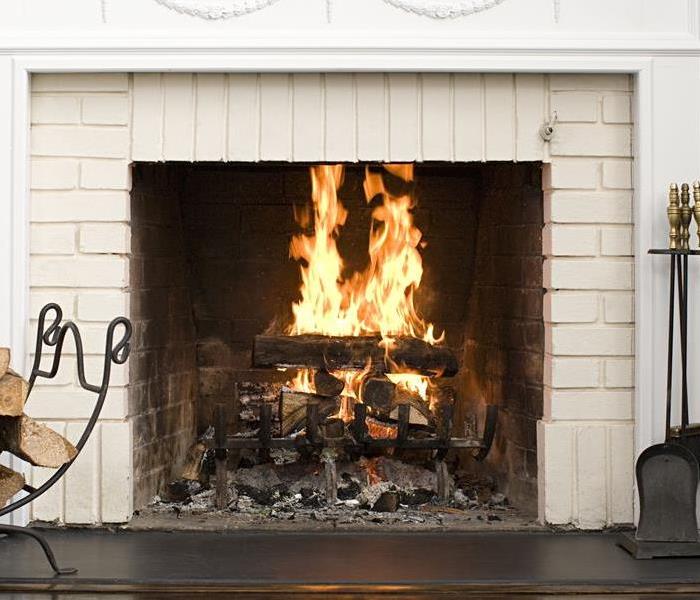 Maintaining your fireplace is important!
Maintaining your fireplace is important!
How to Maintain your Fireplace
When your home has a fireplace, there is a lot of responsibility in maintaining it. Before you use it, make sure it is in good working order, and cleaned out properly. If it’s not maintained regularly, it could cause a structure fire, smoke could puff back in the house, or it could cause carbon monoxide poisoning. We’ll provide a few easy steps to take to make sure your fireplace is safe.
- Your chimney should be swept inside at least once a year, and it should be at the beginning of the year. By sweeping the chimney, it will help remove soot and debris. When you’re sweeping you should look for any animals that may have crawled in and died.
- Before you start the fire, check the structure of your chimney. You want to make sure there are no cracks, loose bricks, or missing mortar. Also look for any deterioration. Cracks and spalling are signs of deterioration.
- Use a wire-mesh cap on top of the chimney to keep the birds, squirrels, rain and other debris from entering.
- Check the damper; the damper is a movable plate that sits above the fireplace before the flue. Make sure the damper is working properly. There should be no debris preventing it from opening and closing.
- When cleaning the chimney, you want to keep an eye out for creosote buildup. Creosote is a chemical mass of carbon formed when wood, tar or fossil fuels are burned. Even though you can’t see it from the outside doesn’t mean that the buildup is not on the inside. When it’s not properly removed, it can build up in the flue and chimney, potentially causing a chimney fire.
- Make sure there isn’t anything hanging over the chimney, such as tree limbs, flags, etc. They could be a fire hazard, and it could interfere with proper draft airflow.
- Clean out ashes regularly. You should clean out the ashes from the last time you ran your fireplace. You can simply sweep or vacuum the cold ashes and dispose of them. Be aware that there could be hot coals in the mix. Hot coals can stay hot for up to 3 days.
If you don’t have experience in cleaning or maintaining your fireplace or know what to look for, call a local professional. They have the tools and resources to make sure that your chimney is up and running safely for the winter time.
SERVPRO of Lincoln specializes in the cleanup and restoration of residential and commercial property after a fire, smoke or water damage event. We can handle any size disaster!
Call us at (402) 466-4004
The Terrifying Truth about Laundry
6/2/2020 (Permalink)
Most of us pride ourselves on being incredibly talented multi-taskers, going through life, and getting stuff done. That’s great and all, but there comes a time where it’s actually dangerous to multi-task. For instance, laundry is not something you want to do while you’re away from home because two major disasters can happen the minute you leave your home.
Water Loss Potential
The first one being a water loss when your washing machine’s water line breaks or starts leaking. Another possibility is the hose hooked up to your washer can actually become detached due to the shaking and shifting of the machine. Wouldn’t that be a fun surprise to come home and see your entire laundry room floor is covered in water? Actually, no. It’s not fun. We would know.
Fire Loss Potential
The second major disaster that is likely to occur is a fire sparking from the clogged lint in your dryer vent. With fires being so unpredictable, we strongly advise you do not hit the start button before you run some errands in town. An extra precaution we advise is cleaning out your lint trap before and after each use, and on a yearly basis, clean out the vent pipe or have a dryer lint removal service do it for you.
Lesson Learned
We know it’s tempting to get two things done at once, but this is one task that needs more of your attention and presence.
SERVPRO of Lincoln specializes in the cleanup and restoration of residential and commercial property after a fire, smoke or water damage event. We can handle any size disaster!
Call us at 402.466.4004
What to do and what not to do after a fire.
12/30/2019 (Permalink)
What To Do After A Fire
- Limit movement in the home to prevent soot particles from being embedded into upholstery and carpets.
- Keep hands clean so as not to further soil upholstery, walls, and woodwork.
- Place clean towels or old linens on rugs, upholstery, and carpet traffic areas.
- If electricity is off, empty freezer and refrigerator and prop doors open.
- Clean and protect chrome with light coating of petroleum jelly or oil.
- Wash houseplants on both sides of leaves.
- Change the HVAC filter.
- Tape double layers of cheesecloth over air registers.
What NOT To Do After A Fire
- Don't attempt to wash any walls or painted surfaces or shampoo carpet or upholstery without contacting your SERVPRO Franchise Professional.
- Don't attempt to clean any electrical appliances that may have been close to fire, heat or water without consulting an authorized repair service.
- Don't use any canned or packaged food or beverages that may have been stored near the fire, heat or water.
- Don't turn on ceiling fixtures if ceiling is wet. The wiring may be damaged.
- Don't send garments to an ordinary dry cleaner. Improper cleaning may set a smoke odor.
SERVPRO of Lincoln specializes in the cleanup and restoration of residential and commercial property after a fire, smoke or water damage event. We can handle any size disaster!
Call us at 402.466.4004
It's Not Just Any Fire, It's a Fire That Affected You
12/30/2019 (Permalink)
Fires can happen in any home or office, but there are things we can all do to limit the risks of fires starting in the first place and take steps to limit the impact of a fire should one start. Do you know what the leading cause of winter fires is? It may not be what you think. Should your home or office be damaged from a fire starting in the microwave in the breakroom from forgotten food or in your home from bad wiring, we can help. We understand that when it comes to your fire, it is not just another job. It is the business you built from the ground up and have poured blood, sweat, and tears into. It is your dream home that you have spent time and money fixing and updating to make it the home your kids will grow up in and will hold memories and traditions. We walk with you through the process, guiding you with answers, advice, and experience through to the other side where life will come back together.
SERVPRO of Lincoln specializes in the cleanup and restoration of residential and commercial property after a fire, smoke or water damage event. We can handle any size disaster!
Call us at 402.466.4004
Ozone Deodorizes without Chemicals
12/13/2019 (Permalink)
Activated oxygen machines, otherwise known as ozone machines, work in your home to clean the air of odor. One of the most common uses is for the decimation of smoke odor. These machines work by breaking down the oxygen we breath (O2), and converting it into ozone (O3).
These machines have a wide range of uses and be used in one room of a house or the entire floor of a building. Here at SERVPRO of Lincoln, we use them quite often when there has been a fire. The activated oxygen machine allows us to clean a room that smells of smoke without using any chemicals. These little machines are not limited to smoke odor cleaning! They can also be used for pet and food odors!
If you have any odors in your home, call SERVPRO of Lincoln to assess the situation. We have the knowledge, tools and track record to effectively remove odors in your home or business.
Call us today at 402.466.4004.
Fire is not a Toy
12/3/2019 (Permalink)
Each year, the Red Cross responds to nearly 64,000 disasters! The majority of these disasters are home fires resulting in about 7 deaths and 36 injuries every day and over $7 billion in property damage every year. The Red Cross recommends keeping matches, lighters and other ignitable substances in a secured location out of the reach of children. Only use lighters with child-resistant features in the home, as often times fire starters can look like a toy for children. Using these precautions can help not only keep everyone in your family safe but may save a life.
SERVPRO of Lincoln specializes in the cleanup and restoration of residential and commercial property after a fire, smoke or water damage event. We can handle any size disaster!
Call us at 402.466.4004
5 Interesting things to know about Fire
10/28/2019 (Permalink)
Whether your fire is on purpose (bonfire) or on accident is important to know your fire facts.
1. Earth is the only known planet where fire can burn. Everywhere else does not have enough oxygen. On Earth air consists of 21% oxygen.
2. Oxygen supply influences the color of the flame. A low-oxygen fire contains lots of uncombusted fuel particles and will give off a yellow glow. A high-oxygen fire burns blue.
3. Spontaneous combustion is real. Some fuel sources can generate their own heat—by rotting, for instance. Pistachios have so much natural oil and are so prone to heat-generating fat decomposition that the International Maritime Dangerous Goods Code regards them as dangerous.
4. Haystacks, compost heaps, and even piles of old newspapers and magazines can also burst into flame.
5. America’s deadliest fire took place April 27, 1865, aboard the steamship Sultana. Among other passengers were 1,500 recently released Union prisoners traveling home up the Mississippi when the boilers exploded. The ship was six times over capacity, which helps explain the death toll of 1,547.
SERVPRO of Lincoln specializes in the cleanup and restoration of residential and commercial property after a fire, smoke or water damage event. We can handle any size disaster!
Call SERVPRO of Lincoln (402) 466-4004
6 Things to know about Fire
5/14/2019 (Permalink)
1. Understand the fire triangle
A simplified cousin to the fire tetrahedron, the triangle represents the three components that fires need to exist: heat, oxygen and fuel. If one of these components is missing, a fire can’t ignite.
2. Fire kills
Every year more than 3,800 people die fire related deaths in the U.S. Approximately 18,300 people are injured every year in fires. Most of these fires could have been prevented by practicing proper fire safety and having fire alarms. On average more than 60 firefighters die every year in the line of duty.
3. It's in the kitchen
Most house fires start in the kitchen. Cooking is the leading cause of home fire injuries. Cooking fires often start from overheated grease and unattended cooking. Electric stoves are involved in more fires than gas stoves.
4. Leading causes of death
Another fact about fire is that smoking is the primary cause of death by fire in the U.S. The second cause of fire deaths is heating equipment.
5. Arson
Arson is the third most common cause of home fires. Arson in commercially operated buildings is the major reason for fire deaths and injuries in those types of properties.
6. Smoke inhalation
More people die from smoke inhalation than flames. Fire can suck all of the oxygen from a room and replace it with poisonous smoke and gases before flames even reach a room. Many times people die from lack of oxygen before the fire reaches their room.
SERVPRO of Lincoln specializes in the cleanup and restoration of residential and commercial property after a fire, smoke or water damage event. We can handle any size disaster!
Call us at (402) 466-4004
Find more facts about fire at https://www.firerescue1.com/fire-products/Firefighter-Accountability/articles/1206336-9-facts-about-fire/
Clean Your Dryer Vents
12/20/2018 (Permalink)
One of the most common causes of fires is also perhaps the most preventable.
Dryer vents connect from your clothes dryer, and can build up lint. If not cleaned out properly, the air cannot flow properly, and a fire can result. This type of fire happens most frequently in homes, posing dangers to adults and children.
According to the U.S. Fire Administration, 2,900 home clothes dryer fires are reported each year. These fires cause an estimated 5 deaths, 100 injuries, and $35 million in property loss. The U.S. Fire Administration also reports that the leading cause of home clothes dryer fires is failure to clean them (34 percent).
Apart from cleaning your dryer vent, the U.S. Fire Administration has suggestions to enhance safety when using your clothes dryer:
- Don’t use a clothes dryer without a lint filter or with a lint filter that is loose, damaged or clogged.
- Don’t overload the dryer.
- Don’t use a wire screen or cloth to cover the wall damper. They can collect lint and clog the dryer vent.
- Don’t dry anything containing foam, rubber or plastic. An example of an item not to place in a dryer is a bathroom rug with a rubber backing.
- Don’t dry any item for which manufacturers' instructions state “dry away from heat.”
- Don’t dry glass fiber materials (unless manufacturers' instructions allow).
- Don’t dry items that have come into contact with anything flammable like alcohol, cooking oils or gasoline. Dry them outdoors or in a well-ventilated room, away from heat.
- Don’t leave a clothes dryer running if you leave home or when you go to bed.
SERVPRO of Lincoln specializes in the cleanup and restoration of residential and commercial property after a fire, smoke or water damage event; as well as mold remediation. We can handle any size disaster!
Call us today at 402.466.4004
Choosing the Right Fire Extinguisher
12/18/2018 (Permalink)
A fire extinguisher can be a life-saving tool when used correctly. The U.S. Fire Administration (USFA) recommends individuals are properly trained in order to use and maintain an extinguisher.
USFA says an extinguisher should only be used if:
• You have alerted other occupants and someone has called the fire department.
• The fire is small and contained to a single object, such as a wastebasket.
• You are safe from the toxic smoke produced by the fire.
• You have a means of escape identified and the fire is not between you and the fire escape route.
• Your instincts tell you that it is safe to use an extinguisher.
Classes of Fire Extinguishers:
- Class A: Use on ordinary combustible materials, such as cloth, wood, rubber, paper, and many plastics.
- Class B: Use on flammable liquids, such as grease, gasoline and oil.
- Class C: Use on appliances, tools, or other equipment that is electrically energized or plugged in.
- Class D: Use on flammable metals and are often specific for the type of metal in question. These are typically found only in factories working with these metals.
- Class K: Use on vegetable oils, animal oils, or fats in cooking appliances. These are generally found in commercial kitchens, but are suitable for the residential market.
SERVPRO of Lincoln specializes in the cleanup and restoration of residential and commercial property after a fire, smoke or water damage event; as well as mold remediation. We can handle any size disaster!
Call us today at 402.466.4004
Holiday Lights and Christmas Trees
12/14/2018 (Permalink)
The holiday season is upon us and Christmas decorating is in full swing. For many people it is a tradition to decorate for Christmas and is something that is shared with the family and many others. Whether you only decorate the interior of the home or you decorate both the interior and exterior, decorations and lights certainly add to the splendor of the Christmas season. According to the National Fire Protection Association fire departments responded to an average of 200 homes for structure fires related to Christmas trees between 2011-2015. Avoid Christmas tree and light related fires by following these simple safety tips.
Trees
When purchasing live Christmas trees, check for freshness and try to avoid dry trees. When you are cutting the tree, cut 1-2 inches from the base of the trunk to ensure optimal water absorption. Live trees require plenty of water. Make sure that you are checking the tree daily and watering when needed. If you prefer an artificial tree, ensure that the tag reads “Fire Resistant”. When placing the trees in your home, ensure that they are placed at least 3 feet away from all heat sources.
Lights
Check all lights to ensure that there are no worn or broken cords or loose bulbs. If you find any damage, dispose of the damaged lights and replace. When purchasing lights be sure to check the label that shows whether or not they are for indoor or outdoor use and purchase accordingly. In addition, read the instructions included with the lights. Most recommend that you plug no more than three strands together so that you are not overloading the socket. Last but not least, turn ALL Christmas lights off when going to bed or leaving the home.
If you find yourself with a damage this holiday season, call our office at 402-466-4004. Our team will evaluate your damage and give you a clear explanation of the restoration process.
Tips for Staying Safe this Holiday Season
12/4/2018 (Permalink)
The winter holiday season is traditionally a festive and eventful time of year. Celebrations, family gatherings and house guests can increase in number during the season. However, statistics show that the incidents of home fires and electrical accidents also typically increase during this time of year.
Pretty lights, candles and decorations are just a few of the items bringing charm and cheer to the holiday season. However, if they are not used carefully, your holidays may go from festive to frightening. The American Red Cross offers the following safety tips to help greatly reduce the fire risk in your home or business this holiday season:
- Place Christmas trees, candles and other holiday decorations at least three feet away from heat sources like fireplaces, portable heaters, radiators, heat vents and candles.
- Make sure that light strings and other holiday decorations are in good condition. Do not use anything with frayed electrical cords and always follow the manufacturer's instructions.
- Always unplug tree and holiday lights before leaving the property or going to bed.
- Never use lit candles to decorate a tree. Always extinguish candles before leaving the room or going to bed.
- Use only sturdy tree stands designed not to tip over. Keep curious pets and children away from Christmas trees.
- Keep anything that can catch on fire--pot holders, oven mitts, wooden utensils, paper or plastic bags, food packaging, and towels or curtains-away from your stove top.
- After a party, designate one person to walk around your property to ensure all candles and smoking materials are properly extinguished after guests leave.
Encourage family, friends, colleagues and neighbors to follow these simple safety tips. We want everyone to be safe and happy during this magical time of year. Contact Us
If fire or water damage strikes your home or business during the holidays, give us a call. We are on call 24 hours a day, 356 days a year. SERVPRO Professionals have been helping keep homes merry and bright for more than 45 years.Contact SERVPRO of Lincoln at (402)466-4004
http://www.SERVPROlincoln.com
Safety Tips when using a Space Heater
10/15/2018 (Permalink)
Nothing can take the chill out of a cold room quite like a space heater, but they are also dangerous, 40-percent of home heating fires are caused by space heaters. Before purchasing a space heater, it is important to think about how you will be using it. Will it be used for supplemental heat in colder rooms or other areas, or will it be used for emergency heat? As a general rule of thumb, electric space heaters are typically safer than portable fuel-burning models (e.g. natural gas, propane, kerosene.) When choosing a unit try to find one that is listed or labeled by a nationally recognized testing laboratory such as CSA (Canadian Standards Association), UL (Underwriters Laboratories), or ETL (Intertek). Doing this will ensure that the heater’s construction and performance meet voluntary safety standards. Continue reading for some tips for keeping your home or office safe while using a space heater. While some may seem obvious, others may surprise you:
- Protect with Smoke Alarms -Make sure you have smoke alarms/carbon monoxide on every floor of your home and they are tested them regularly.
- Keep it Level -Always make sure the space heater on a hard, level and non-flammablesurface
- Use a Timer - Many models feature programmable timers that can be used to program automatic on and off times for when you sleep or head to work.
- Area Free of Flammable Liquids- Do not put them on easily ignitable or combustible surfaces, such as rugs or carpets, or use them to dry wet clothing.
- Don't Extend the Power Line -Avoid using an extension cord. Plug a space heater directly into an outlet with enough capacity.
- Remember the 3 Feet Rule -Ensure the space heater is at least 3ft away from anything that isn’t non-flammable.
- Keep it a Kid Free Zone -Keep children and pets away from space heaters.
- Clean Your Space Heater -Be sure to clean your space heater regularly, and follow your manufacturer’s guide for specific advice on maintenance and inspection.
- Don't Leave it Running -Never leave a space heater on when you leave.
Most space heaters will warm you up, but not all are created equal. The best space heater will included safety features like tip-over protection and UL certification. It should also be easy to move and operate, dispersing heat without wasting energy. Below is a great website you can use to find the best space heater for you and your needs.
https://www.reviews.com/space-heater/
Contact Us
If fire or water damage strikes your home or business, give us a call. We are on call 24 hours a day, 356 days a year. SERVPRO Professionals have been helping home and business owners for more than 45 years. ContactSERVPROof Lincoln at (402)466-4004 or SERVPROilncoln.com
It Is Possible to Preserve Contents After A Fire!
8/27/2018 (Permalink)
Preserving The Contents Of Your Fire Damaged Home
Fire damage, including smoke and soot, affects not only the structure of your house but also your belongings. SERVPRO of Lincoln understands your family’s furniture, clothing, keepsakes, and other belongings are the very things that make a house a home.
Contents Restoration
SERVPRO of Lincoln technicians specialize in restoring contents damaged by fire. Their expertise and “restore” versus “replace” mentality can help you save money while preserving precious keepsakes that can’t be replaced. They pretest your belongings to determine what items they can restore to pre-fire condition. They use several methods of cleaning your contents, including:
- Dry Cleaning - Used for cleaning light residues or to pre-clean prior to wet cleaning.
- Wet Cleaning - An effective cleaning method for removing moderate to heavy residues.
- Spray and Wipe -Effective for items that can’t withstand wet cleaning.
- Foam Cleaning - Used for upholstery fabrics that might shrink or bleed if wet cleaned.
- Abrasive Cleaning - Involves agitation of the surface being cleaned.
- Immersion Cleaning - Contents are dipped into a bath of the cleaning product.
Staying Safe During Sub Zero Temperatures
12/29/2017 (Permalink)
Winter has arrived, along with bitter cold and freezing temperatures. In an effort to keep living spaces cozy, many residents turn to alternative heat sources. The most common supplemental heat source is a portable space heater. These devices can generate a lot of extra heat, but if used improperly, can also create serious safety hazards. Consider the following tip to minimize risks of a heating related fire.
- Always turn off portable heaters when going to bed or leaving a room.
- Have heating equipment and chimneys cleaned and inspected each year by a qualified professional.
- Keep space heater at least 3 feet from and obstructions
SERVPRO of Lincoln specializes in the cleanup and restoration of commercial and residential property after a water damage event. Our staff is highly trained in property damage restoration. From initial and ongoing training at SERVPRO’s corporate training facility to regular IICRC-industry certification, rest assured our staff is equipped with the knowledge to restore your property.
The Do's And Don'ts Of Extension Cord Use
12/21/2017 (Permalink)
The U.S. Consumer Product Safety Commission (CPSC) estimates that each year, about 4,000 injuries associated with electric extension cords are treated in hospital emergency rooms. About half of the injuries involve fractures, lacerations, contusions or sprains from people tripping over extension cords. CPSC also estimates that about 3,300 residential fires originate in extension cords each year, killing 50 people and injuring about 270 others. The most frequent causes of such fires are short circuits, overloading, damage and/or misuse of extension cords. The Do's and Don'ts of using an extension cords. Do's
- Use extension cords only when necessary and only on a temporary basis.
- Use extension cords that are the correct size or rating for the equipment in use. The diameter of the extension cord should be the same or greater than the cord of the equipment in use.
- Only use cords rated for outdoor use when using a cord outside.
- Keep electrical cords away from areas where they may be pinched and areas where they may pose a tripping or fire hazard (e.g., doorways, walkways, under carpet, etc.).
- Always inspect the cord prior to use to ensure the insulation is not cut or damaged, exposed conducting wires can put you at risk for fire, burns and electrical shock. Discard damaged cords, cords that become hot, or cords with exposed wiring.
Don'ts
- Do not use extension cords in place of permanent wiring.
- Never unplug an extension cord by pulling on the cord; pull on the plug.
- Do not remove the prongs of an electrical plug. If plug prongs are missing, loose, or bent, replace the entire plug.
- Do not use an adapter or extension cord to defeat a standard grounding device. (e.g., only place three-prong plugs in three-prong outlets; do not alter them to fit in a two-prong outlet.)
- Do not run cords above ceiling tiles or through walls.
Extended exposure to outdoor conditions can cause cords to deteriorate, so whether they're rated for indoors or outdoors, store all extension cords inside when they’re not in use. Regardless of whether or not it's being used, as long as a power extension cord is plugged into an outlet, it's conducting electricity. To avoid potential safety hazards, always remember to unplug extension cords when they're not in use!
Cleaning Smoke Damage
12/21/2017 (Permalink)
When the firefighters leave, it may seem like the danger has passed and the home is safe from further destruction. While fire may be the immediate danger, once it is gone, what it leaves behind will continue to affect the house. Ash and smoke, if left untouched, will cause extensive corrosion, etching and discoloration. Also powerful lingering odors. The only way to properly clean smoke and fire damage is to be extremely thorough. This entire process is very detailed. Ash residue is easily disturbed and can spread through the building with ease, causing everything to need restoration.
Things You need to Know About Smoke Damage
- Smoke Migrates to Cooler Areas: The behavior of smoke during a fire is largely dependent on temperature. Smoke is typically hot and migrates to cooler regions of your home. Unfortunately, the cooler regions of your home are often hard to reach places, like cabinets and the underside of furniture. This makes the cleaning process much more difficult and is one of the major consequence of smoke damage.
- Smoke Uses Plumbing to Migrate Through Your House: Smoke naturally travels through plumbing systems, using holes around pipes to travel from floor to floor. This is the best way for smoke to travel throughout homes and buildings and cause further damage. Vents and plumbing systems are cleaned and often replaced if smoke damage is great enough.
- Wet, Smoldering Fires Produce the Most Damaging Smoke: The type of fire and the type of smoke produced by the fire make a huge difference when it comes to cleaning smoke damage. Wet, smoldering fires produce highly volatile and noxious smoke, the effects of which can persist for years if not cleaned properly.
- High Temperature Fires Produce Easier to Clean Smoke Damage: Contrary to what you might believe, high temperature fires tend to be less damaging than smoldering fires. That is because they burn very quickly and produce a different type of smoke that contains less damaging soot. As a result, even though the high temperature fire may seem like it would produce more damage, you may just get lucky.
- A Very Damaging Component of Smoke is Invisible: While the billowing clouds of dark smoke may seem the likely culprit, it’s the invisible protein residues of smoke that can also cause server damage. These residues can break down metal, wood, paint, and even porcelain, and their highly volatile chemical make-up allows them to penetrate deep into almost any substance while remaining totally invisible. Beware of this invisible enemy!
- Smoke Damage Can destroy Metal and Wood Items: You might think that hearty substance like wood and metal would not be affected by smoke as much as upholstery and textiles. You’d be wrong. The noxious protein residues in smoke can break down brass, copper, wood, and even stone, causing them to decay at an ultra rapid rate. Be sure to let a professional know about the exposure of wood and metal items to smoke and the duration of the exposure.
- The Number 1 Rule to Prevent Lasting Smoke Damage: Get Air Moving: If you want to get a head start on cleaning up your home after smoke damage, follow the cardinal rule. Get air moving. Use fans and open windows to keep air circulating throughout your home. This will prevent any remaining smoke residues from penetrating even deeper into your house and property.
Tips For Staying Safe in Lincoln NE During This Holiday Season
12/5/2017 (Permalink)
The winter holiday season is traditionally a festive and eventful time of year. Celebrations, family gatherings and house guests can increase in number during the season. However, statistics show that the incidents of home fires and electrical accidents also typically increase during this time of year.
Pretty lights, candles and decorations are just a few of the items bringing charm and cheer to the holiday season. However, if they are not used carefully, your holidays may go from festive to frightening. The American Red Cross offers the following safety tips to help greatly reduce the fire risk in your home or business this holiday season: - Place Christmas trees, candles and other holiday decorations at least three feet away from heat sources like fireplaces, portable heaters, radiators, heat vents and candles.
- Make sure that light strings and other holiday decorations are in good condition. Do not use anything with frayed electrical cords and always follow the manufacturer's instructions.
- Always unplug tree and holiday lights before leaving the property or going to bed.
- Never use lit candles to decorate a tree. Always extinguish candles before leaving the room or going to bed.
- Use only sturdy tree stands designed not to tip over. Keep curious pets and children away from Christmas trees.
- Keep anything that can catch on fire--pot holders, oven mitts, wooden utensils, paper or plastic bags, food packaging, and towels or curtains-away from your stove top.
- After a party, designate one person to walk around your property to ensure all candles and smoking materials are properly extinguished after guests leave.
Encourage family, friends, colleagues and neighbors to follow these simple safety tips. We want everyone to be safe and happy during this magical time of year. Contact Us
If fire or water damage strikes your home or business during the holidays, give us a call. We are on call 24 hours a day, 356 days a year. SERVPRO Professionals have been helping keep homes merry and bright for more than 45 years.Contact SERVPRO of Lincoln at (402)466-4004http://www.SERVPROlincolneast.com
Things You Need To Know About Smoke Damage
10/16/2017 (Permalink)
http://www.SERVPROlincolneast.com/fire-smoke-damage-restorationWhen the firefighters leave, it may seem like the danger has passed and the home is safe from further destruction. While fire may be the immediate danger, once it is gone, what it leaves behind will continue to affect the house. Ash and smoke will cause extensive corrosion, etching and discoloration not to mention powerful lingering odors. The only way to properly clean smoke and fire damage is to be extremely thorough. This entire process is very detailed. Ash residue is easily disturbed and can spread through the building with ease, causing nearly everything to need restoration.
Things You need to Know About Smoke Damage
1. Smoke Migrates to Cooler Areas: The behavior of smoke during a fire is largely dependent on temperature. Smoke is typically hot and migrates to cooler regions of your home. Unfortunately, the cooler regions of your home are often hard to reach places, like cabinets and the underside of furniture. This makes the cleaning process much more difficult and is one of the major consequence of smoke damage.
2. Smoke Uses Plumbing to Migrate Through Your House: Smoke naturally travels through plumbing systems, using holes around pipes to travel from floor to floor. This is the best way for smoke to travel throughout homes and buildings and cause further damage. Vents and plumbing systems are cleaned and often replaced if smoke damage is great enough.
3. Wet, Smoldering Fires Produce the Most Damaging Smoke: The type of fire and the type of smoke produced by the fire make a huge difference when it comes to cleaning smoke damage. Wet, smoldering fires produce highly volatile and noxious smoke, the effects of which can persist for years if not cleaned properly.
4. High Temperature Fires Produce Easier to Clean Smoke Damage: Contrary to what you might believe, high temperature fires tend to be less damaging than smoldering fires. That is because they burn very quickly and produce a different type of smoke that contains less damaging soot. As a result, even though the high temperature fire may seem like it would produce more damage, you may just get lucky.
5. A Very Damaging Component of Smoke is Invisible: While the billowing clouds of dark smoke may seem the likely culprit, it’s the invisible protein residues of smoke that can also cause server damage. These residues can break down metal, wood, paint, and even porcelain, and their highly volatile chemical make-up allows them to penetrate deep into almost any substance while remaining totally invisible. Beware of this invisible enemy!
6. Smoke Damage Can destroy Metal and Wood Items: You might think that hearty substance like wood and metal would not be affected by smoke as much as upholstery and textiles. You’d be wrong. The noxious protein residues in smoke can break down brass, copper, wood, and even stone, causing them to decay at an ultra rapid rate. Be sure to let a professional know about the exposure of wood and metal items to smoke and the duration of the exposure.
7. The Number 1 Rule to Prevent Lasting Smoke Damage: Get Air Moving: If you want to get a head start on cleaning up your home after smoke damage, follow the cardinal rule. Get air moving. Use fans and open windows to keep air circulating throughout your home. This will prevent any remaining smoke residues from penetrating even deeper into your house and property.
Will Extension Cords Cause Damage or Injury At Your Business?
9/15/2017 (Permalink)
The U.S. Consumer Product Safety Commission (CPSC) estimates that each year, about 4,000 injuries associated with electric extension cords are treated in hospital emergency rooms. About half of the injuries involve fractures, lacerations, contusions or sprains from people tripping over extension cords. CPSC also estimates that about 3,300 residential fires originate in extension cords each year, killing 50 people and injuring about 270 others. The most frequent causes of such fires are short circuits, overloading, damage and/or misuse of extension cords. The Do's and Don'ts of using an extension cords. Do's
- Use extension cords only when necessary and only on a temporary basis.
- Use extension cords that are the correct size or rating for the equipment in use. The diameter of the extension cord should be the same or greater than the cord of the equipment in use.
- Keep electrical cords away from areas where they may be pinched and areas where they may pose a tripping or fire hazard (e.g., doorways, walkways, under carpet, etc.).
- Always inspect the cord prior to use to ensure the insulation is not cut or damaged, exposed conducting wires can put you at risk for fire, burns and electrical shock. Discard damaged cords, cords that become hot, or cords with exposed wiring.
Don'ts
- Do not use extension cords in place of permanent wiring.
- Never unplug an extension cord by pulling on the cord; pull on the plug.
- Do not remove the prongs of an electrical plug. If plug prongs are missing, loose, or bent, replace the entire plug.
- Do not use an adapter or extension cord to defeat a standard grounding device. (e.g., only place three-prong plugs in three-prong outlets; do not alter them to fit in a two-prong outlet.)
- Do not run cords above ceiling tiles or through walls.
Extended exposure to outdoor conditions can cause cords to deteriorate, so whether they're rated for indoors or outdoors, store all extension cords inside when they’re not in use. Regardless of whether or not it's being used, as long as a power extension cord is plugged into an outlet, it's conducting electricity. To avoid potential safety hazards, always remember to unplug extension cords when they're not in use!
Important Safety Tips For Using A Space Heater!
1/5/2017 (Permalink)
Follow These Guidelines When Using A Space Heater
Space heaters can take the chill out of a cooler room, but they can also be dangerous, as 40-percent of home heating fires are caused by space heaters. Before purchasing a space heater, it is important to consider how it will be used. Will it be used for supplemental heat in colder rooms or other areas, or will it be used for emergency heat? As a general rule of thumb, electric space heaters are typically safer than portable fuel-burning models (e.g. natural gas, propane, kerosene.) Remember to choose a unit that is listed or labeled by a nationally recognized testing laboratory such as UL (Underwriters Laboratories), CSA (Canadian Standards Association) or ETL (Intertek). This will ensure that the heater’s construction and performance meet voluntary safety standards.Below are some tips for keeping your home or office safe while using a space heater. While some may seem obvious, others may surprise you:
- Keep It Level Always place a space heater on a hard, level and non flammable surface
- Remember the 3 Feet Rule Ensure the space heater is at least 3 ft away from anything that can burn.
- Keep It A Kid Free Zone Keep children and pets away from space heaters.
- Don't Leave It Running Never leave a space heater on when you leave.
- Protect With Smoke Alarms Install smoke alarms/carbon monoxide on every floor of your home and test them regularly.
- Don't Extend Yourself Avoid using an extension cord. Plug a space heater directly into an outlet with enough capacity.
- Areas Where Space Heaters Are Used Should Be Free Of Flammable Liquids. Do not put them on easily ignitable or combustible surfaces, such as rugs or carpets, or use them to dry wet clothing.
- Use A TimerMany models feature programmable timers that can be used to program automatic on and off times for when you sleep or head to work.
- Clean Your Space Heater Be sure to clean your space heater regularly, and follow your manufacturer’s guide for specific advice on maintenance and inspection.
Any space heater will warm you up, but not all are created equal. The best space heater will included safety features like tip-over protection and UL certification. It should also be easy to move and operate, dispersing heat without wasting energy.
https://www.reviews.com/space-heater/
Contact Us
If fire or water damage strikes your home or business, give us a call. We are on call 24 hours a day, 356 days a year. SERVPRO Professionals have been helping home and business owners for more than 45 years.Contact SERVPRO of Lincoln at (402)466-4004 http://www.SERVPROlincolneast.com/
Celebrate Safely This Holiday Season
12/13/2016 (Permalink)
Celebrate Safely This Holiday Season
The holiday season is a time for gathering with friends and family to enjoy fellowship and quality time. While you're busy with decorating and baking, it is important to remember safety.
Pretty lights, candles and decorations are just a few of the items bringing charm and cheer to the holiday season. However, if they are not used carefully, your holidays may go from festive to frightening.
The American Red Cross offers the following safety tips to help greatly reduce the fire risk in your home or business this holiday season:
- Place Christmas trees, candles and other holiday decorations at least three feet away from heat sources like fireplaces, portable heaters, radiators, heat vents and candles.
- Make sure that light strings and other holiday decorations are in good condition. Do not use anything with frayed electrical cords and always follow the manufacturer's instructions.
- Always unplug tree and holiday lights before leaving the property or going to bed.
- Never use lit candles to decorate a tree. Always extinguish candles before leaving the room or going to bed.
- Use only sturdy tree stands designed not to tip over. Keep curious pets and children away from Christmas trees.
- Keep anything that can catch on fire--pot holders, oven mitts, wooden utensils, paper or plastic bags, food packaging, and towels or curtains-away from your stovetop.
- After a party, designate one person to walk around your property to ensure all candles and smoking materials are properly extinguished after guests leave.
- One of every three home Christmas tree fires is caused by electrical problems.
- Although Christmas tree fires are not common, when they do occur, they are more likely to be serious. On average, one of every 31 reported home Christmas tree fires results in a death compared to an average of one death per 144 total reported home fires.
- A heat source too close to the tree causes one in every 4 Christmas tree fires.
- Two out of five home decoration fires are started by candles with one-third of candle fires starting in the bedroom.
Contact Us
If fire or water damage strikes your home or business during the holidays, give us a call. We are on call 24 hours a day, 356 days a year. SERVPRO Professionals have been helping keep homes merry and bright for more than 45 years.
Contact SERVPRO of Lincoln at (402)466-4004
October is Fire Prevention Month! Do You Have A Plan in Lincoln, NE?
10/11/2016 (Permalink)
- In 2014, fires caused 2,745 deaths, 11,825 injuries, and $6.8 billion in property damage.
- Three out of five house fire deaths happen in homes with no or non-working smoke alarms.
- Working smoke alarms cut the risk of dying in half in reported home fires.
- In fires large enough to activate the smoke alarm, hardwired alarms operated 94% of the time, while battery powered alarms operated 80% of the time.
- When smoke alarms fail to operate, it is usually because batteries are missing, disconnected, or dead.
- One quarter of house fire deaths start in the bedroom. Another quarter start in the living room, family room or den.
- One third of surveyed respondents thought they would have at least 6 minutes before a fire in their home would become life-threatening. The time is often much less. Only 8% said their first thought on hearing a smoke alarm would be to get out.
CAN YOU EXIT IN UNDER 2 MINUTES?
Fire experts agree, people have as little as 2 minutes to escape a burning home before it's too late to get out. Increase your chance of surviving by ensuring you have working smoke detectors in place, building an escape plan, and then practicing the plan. The following are a few suggestions to help you develop an emergency escape plan in Lincoln, NE.
- Draw a map of each level of your home and show all doors and windows. Find two ways to get out of each room. Make sure all doors and windows that lead outside open easily.
- Consider escape ladders for sleeping areas on the 2nd and 3rd floors. Store them near the window where they will be used.
- Choose an outside meeting place a safe distance in front of your house. Make sure to make the location of the meeting place on your escape plan.
- Teach children how to escape on their own in case you cannot help them. Plan for everyone in your home with special considerations for elderly or disabled individuals.
- Practice your fire escape plan during the day and night time.
Escape Planning For Your Business
Occupational Safety and Health Administration (OSHA) recommends building an emergency action plan to protect yourself, your employees, and your business during an emergency. OSHA suggests the following steps when developing such a plan:
- Organize an Emergency Preparedness Procedures review with employees to go over your company's emergency plan.
- Once a plan is developed, post evacuation procedures, including routes and exits where they are easily accessible to all employees. Ensure all exits and routes are clearly marked and well lit, wide enough to accommodate the number of evacuating personnel, and unobstructed and clear of debris at all times.
- Conduct office evacuation exercises and drills. Designate a safe spot outside of the facility where employees can regroup, recover and conduct a headcount.
Protect your Home and Business! How to prevent electrical fires.
4/5/2016 (Permalink)
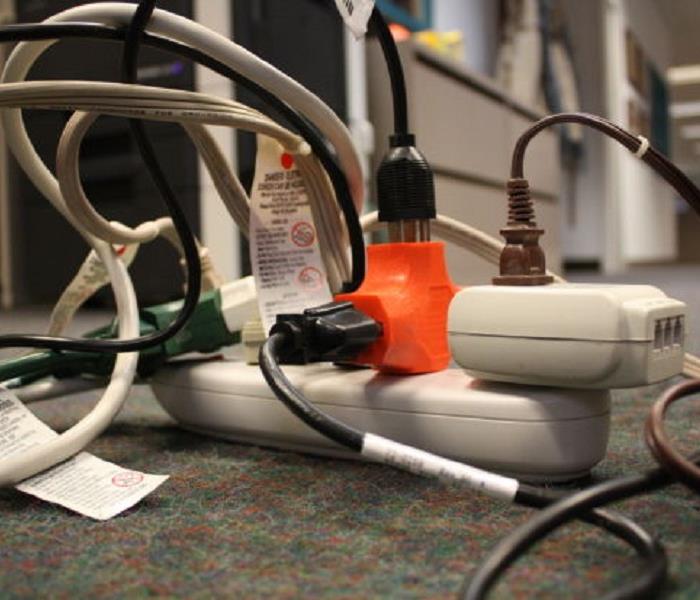
Does the area under your desk or around your entertainment devices look like this picture? You are not alone! In 2014, electricity consumption in the United States totaled nearly 3,863 billion kilowatt-hours. Unless you are living "off the grid", you are using electricity to charge cell phones and laptops, wash and dry clothes, cook meals, brew your morning cup of coffee and heat your business. Electrical power keeps people connected and allows people to do what they need to do. Even though most Americans recognize the benefits that come with electrical power, they must also understand that there is a responsibility that needs to be taken seriously to avoid injury or possible disaster. According to Electrical Safety Foundation International, more than 50,000 fires in the home are attributed to electrical fires. These have resulted in almost 500 deaths and more than 1,400 injuries. The damage that has been done has totaled to more than $1.3 billion. Obviously, being careless with electrical power has very serious consequences. Below are safety measures that you can use in your business and home to reduce the risk of electrical fires: • Inspect your home and business for loose wires, faulty wiring, and shorts. If there are any issues, contact a qualified electrician. Also, use safety covers on outlets to protect children. • Make sure there are smoke detectors on each level of your home or business. Test them each month to make sure they are working properly.• If electrical equipment is making strange sounds or has a weird odor, turn them off. If there is water damage on your property, make sure that an expert inspects all electrical appliances. Do not plug them in or turn them on until they are safe. When water has damaged electrical appliances, they can be very dangerous.• Use safe cord practices. When cords are loose, frayed or cracked, repair them or replace them. Never place cords in high traffic areas, under rugs, or stapled to surfaces. Additional outlets can be installed by an electrician if necessary. Extension cords should only be utilized temporarily.• Light bulb wattage should be correct for the appliance being used.• During spring cleaning and while working near service meters or electrical lines, use caution. Consider hiring a professional to do the work if it is dangerous.• Flammable items should be kept away from electrical appliances.• Consider installing an arc fault circuit interrupter (AFCI) to reduce the chances of electrical fire in your home.• Avoid using electrical power tools outside after it has rained, or the area is wet. Never operate electrical equipment while barefoot.• Do not allow children to climb trees near power lines. Reduce the risk of electrical-related injuries by keeping balloons, kites, and other items away from overhead lines.Prevention is the best method to keep your family and property safe.
Why Professionals Should Clean Smoke Damage
1/15/2016 (Permalink)
While the principles behind fire restoration are fairly simple, it requires a lot of experience and manpower to perform adequately, and this means that it shouldn’t be attempted by a homeowner on his or her own. Of course fire is always the immediate danger, but once it is gone, what it leaves behind will continue to affect the house. Ash and smoke, if left unhindered, will cause extensive corrosion, etching and discoloration, not to mention lingering powerful odors. Professionals that clean fire and smoke damage can stop this before it becomes a major problem, assuming they are contacted soon enough.
Who is qualified to do this type of work?
There are many companies that advertise their ability to restore areas affected by fire, but only those with proper training and certification should be considered. The Institute of Inspection Cleaning and Restoration Certification (IICRC) is the main oversight agency in this industry. The IICRC requires its registrants to take extensive coursework before earning their certification. The IICRC is the most respected certification organization in the remediation industry, and its certified technicians are held to a strict code of ethics designed to protect the consumer.
IICRC technicians stake their reputation on every job, so they excel at both the technical and service demands of the job. These professionals can clean smoke damage and restore items affected by a fire, but they must be brought to the site as soon as possible to halt the ongoing issues that ash residue can cause. The first thing that ash does to the home is discolor most surfaces.
- Anything that is made of plastic, or was close to the fire will start discoloring within minutes.
Within several hours, fiberglass and finishes on appliances will begin to yellow.
After a few days pass, the ash will cause walls to discolor permanently, along with clothing and upholstery.
Wood and vinyl will need to be refinished or replaced, and metal will start corroding.
If a professional isn’t hired to clean smoke and fire damage, the costs for restoration will skyrocket after a few weeks.
- Carpet will permanently discolor
- Glass may be severely etched, which will necessitate replacement
- Odors caused by the disaster may still be present and intense enough to be distracting
- Ash is acidic. The longer it takes to hire experts, the more destruction it will cause.
Call in the Professionals
The first thing a trained, certified, professional company will do when on site is to identify all affected materials and the source of any odors. The experts will identify what can and cannot be salvaged, and will remove any built-up ash residue that is coating surfaces.
- A thorough cleanup is the only way to completely rid the building of ash and debris, so the work is labor intensive.
Technicians will first inspect the property to gauge where cleanup is needed the most and start there, working over every surface that may have been affected by the disaster.
Professionals use special agents that are designed to neutralize ash and smoke, and apply them to walls, ceilings, counter tops, furniture, and anything else that may be under siege by damaging ash and soot.
Smoke odors are another issue that needs to be dealt with as it can seep through walls and deposit on inaccessible areas. Tearing down walls and ripping up floors to remove odor is not a preferred option, so technicians need something that can emulate the movements of smoke and soot. That’s where thermal foggers come in.
Thermal foggers produces a concentration of odor neutralizing particles that are similar in size to soot and smoke particles
A thermal fogger can disperse a blanket of these particles nearly everywhere in the home, including behind walls and inside the ceiling. The process ensures proper removal of lingering odors from fire damage. It takes a lot of technical skill to effectively clean up the damage left behind by a disaster, and the best way for a technician to acquire this skill is by attaining certification. There is little time to waste when looking for a professional to clean up the damage, and certification can provide an effective shorthand method in tracking one down. Choose a company for fire and water restoration with the appropriate licenses and proof that they have the proper insurance. Their safety and health certifications should be up to date, as well as their specialized training. Look for technicians that have been trained formally in schools approved by the Institute of Inspection Cleaning and Restoration Certification.
Recipe for Safety
11/3/2015 (Permalink)
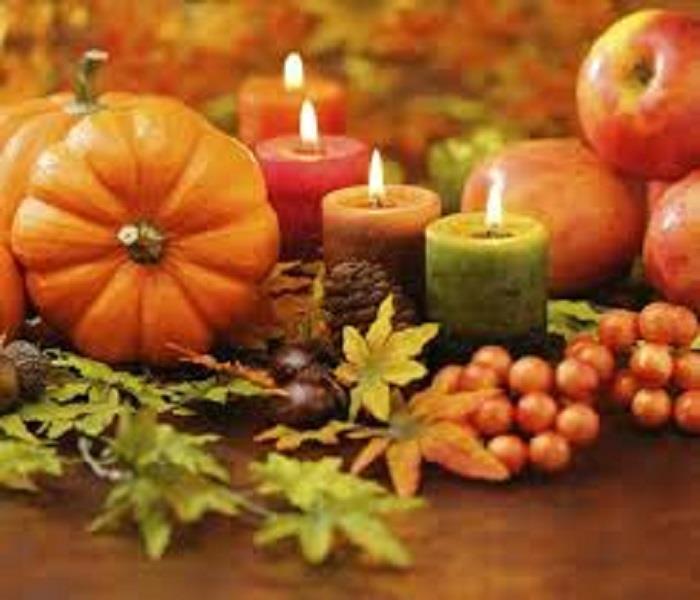 Happy Thanksgiving from Your Friends at SERVPRO
Happy Thanksgiving from Your Friends at SERVPRO
DID YOU KNOW?
Thanksgiving is the peak day for home cooking
fires, followed by Christmas Day and Christmas Eve.
On average, there is a 183% increase in fire
incidents on Thanksgiving Day.
Each November, families gather to celebrate Thanksgiving by preparing a delicious feast. If you don't practice safe cooking habits, your happy holiday could become hazardous very quickly. According to the National Fire Protection Association, cooking is the main cause for home fires and injuries, with Thanksgiving being the peak day for cooking-related fires. Review the following safety tips to ensure you can enjoy a safe holiday. Some tips may seem obvious, but we all tend to get very rushed and that can lead to forgetfulness!
Never leave cooking food unattended-stay in the kitchen when frying, grilling or broiling food.
Check food regularly while cooking and remain in the home while cooking. Keep the kids away from the cooking area. Keep anything flammable--pot holders, oven mitts, wooden utensils, paper or plastic bags, food packaging, and towels--away from the stove, oven or any other appliance in the kitchen that generates heat. Do not wear loose clothing or dangling sleeves while cooking. Clean cooking surfaces on a regular basis to prevent grease buildup. Purchase a fire extinguisher to keep in the kitchen. Always check the kitchen before going to bed or leaving the home to make sure all stoves, ovens and small appliances are turned off. Install a smoke alarm near the kitchen, on each level of the home, near sleeping areas. Tips provided by the American Red Cross. Statistics provided by the National Fire Protection Association.
Your local SERVPRO Franchise Professionals wish you a safe and happy holiday season.
Our Clients Say It Best
The technician was extremely helpful and knowledgeable. Very impressed! Thanks for the peace of mind and not having to worry about this anymore.
Tony S. Lincoln, NE
We greatly appreciate your generous referrals.
Don't let your Extension Cords cause damage
8/11/2015 (Permalink)
The U.S. Consumer Product Safety Commission (CPSC) estimates that each year, about 4,000 injuries associated with electric extension cords are treated in hospital emergency rooms. About half of the injuries involve fractures, lacerations, contusions or sprains from people tripping over extension cords. CPSC also estimates that about 3,300 residential fires originate in extension cords each year, killing 50 people and injuring about 270 others. The most frequent causes of such fires are short circuits, overloading, damage and/or misuse of extension cords. The Do's and Don'ts of using an extension cords. Do's
- Use extension cords only when necessary and only on a temporary basis.
- Use extension cords that are the correct size or rating for the equipment in use. The diameter of the extension cord should be the same or greater than the cord of the equipment in use.
- Only use cords rated for outdoor use when using a cord outside.
- Keep electrical cords away from areas where they may be pinched and areas where they may pose a tripping or fire hazard (e.g., doorways, walkways, under carpet, etc.).
- Always inspect the cord prior to use to ensure the insulation is not cut or damaged, exposed conducting wires can put you at risk for fire, burns and electrical shock. Discard damaged cords, cords that become hot, or cords with exposed wiring.
Don'ts - Do not use extension cords in place of permanent wiring.
- Never unplug an extension cord by pulling on the cord; pull on the plug.
- Do not remove the prongs of an electrical plug. If plug prongs are missing, loose, or bent, replace the entire plug.
- Do not use an adapter or extension cord to defeat a standard grounding device. (e.g., only place three-prong plugs in three-prong outlets; do not alter them to fit in a two-prong outlet.)
- Do not run cords above ceiling tiles or through walls.
Extended exposure to outdoor conditions can cause cords to deteriorate, so whether they're rated for indoors or outdoors, store all extension cords inside when they’re not in use. Regardless of whether or not it's being used, as long as a power extension cord is plugged into an outlet, it's conducting electricity. To avoid potential safety hazards, always remember to unplug extension cords when they're not in use!
What you should know about Smoke Damage
7/16/2015 (Permalink)
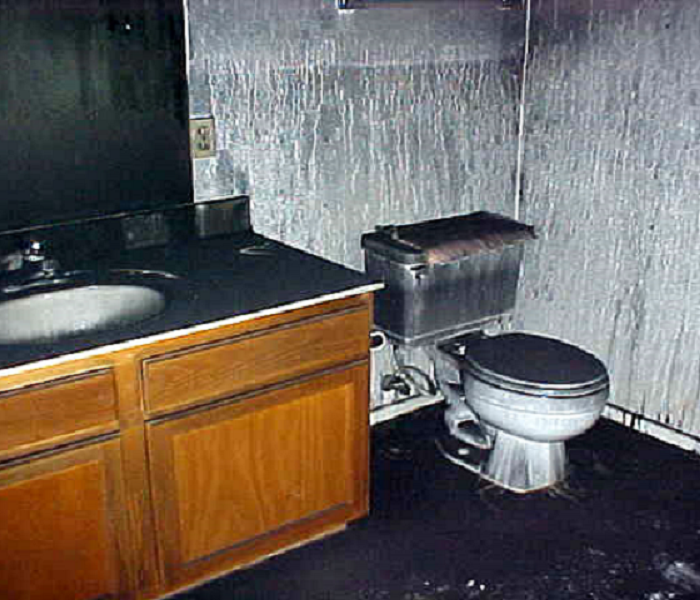 Smoke damage to a bathroom
Smoke damage to a bathroom
Cleaning Smoke Damage From A Fire When the firefighters leave, it may seem like the danger has passed and the home is safe from further destruction. While fire may be the immediate danger, once it is gone, what it leaves behind will continue to affect the house. Ash and smoke, if left unhindered, will cause extensive corrosion, etching and discoloration, not to mention powerful lingering odors. ? The only way to properly clean smoke and fire damage is to be extremely thorough. This entire process is very detailed. Ash residue is easily disturbed and can spread through the building with ease, causing nearly everything to need restoration. Things You need to Know About Smoke Damage 1. Smoke Migrates to Cooler Areas: The behavior of smoke during a fire is largely dependent on temperature. Smoke is typically hot and migrates to cooler regions of your home. Unfortunately, the cooler regions of your home are often hard to reach places, like cabinets and the underside of furniture. This makes the cleaning process much more difficult and is one of the major consequence of smoke damage. 2. Smoke Uses Plumbing to Migrate Through Your House: Smoke naturally travels through plumbing systems, using holes around pipes to travel from floor to floor. This is the best way for smoke to travel throughout homes and buildings and cause further damage. Vents and plumbing systems are cleaned and often replaced if smoke damage is great enough. 3. Wet, Smoldering Fires Produce the Most Damaging Smoke: The type of fire and the type of smoke produced by the fire make a huge difference when it comes to cleaning smoke damage. Wet, smoldering fires produce highly volatile and noxious smoke, the effects of which can persist for years if not cleaned properly. 4. High Temperature Fires Produce Easier to Clean Smoke Damage: Contrary to what you might believe, high temperature fires tend to be less damaging than smoldering fires. That is because they burn very quickly and produce a different type of smoke that contains less damaging soot. As a result, even though the high temperature fire may seem like it would produce more damage, you may just get lucky. 5. A Very Damaging Component of Smoke is Invisible: While the billowing clouds of dark smoke may seem the likely culprit, it’s the invisible protein residues of smoke that can also cause server damage. These residues can break down metal, wood, paint, and even porcelain, and their highly volatile chemical make-up allows them to penetrate deep into almost any substance while remaining totally invisible. Beware of this invisible enemy! 6. Smoke Damage Can destroy Metal and Wood Items: You might think that hearty substance like wood and metal would not be affected by smoke as much as upholstery and textiles. You’d be wrong. The noxious protein residues in smoke can break down brass, copper, wood, and even stone, causing them to decay at an ultra rapid rate. Be sure to let a professional know about the exposure of wood and metal items to smoke and the duration of the exposure. 7. The Number 1 Rule to Prevent Lasting Smoke Damage: Get Air Moving: If you want to get a head start on cleaning up your home after smoke damage, follow the cardinal rule. Get air moving. Use fans and open windows to keep air circulating throughout your home. This will prevent any remaining smoke residues from penetrating even deeper into your house and property.





 24/7 Emergency Service
24/7 Emergency Service


